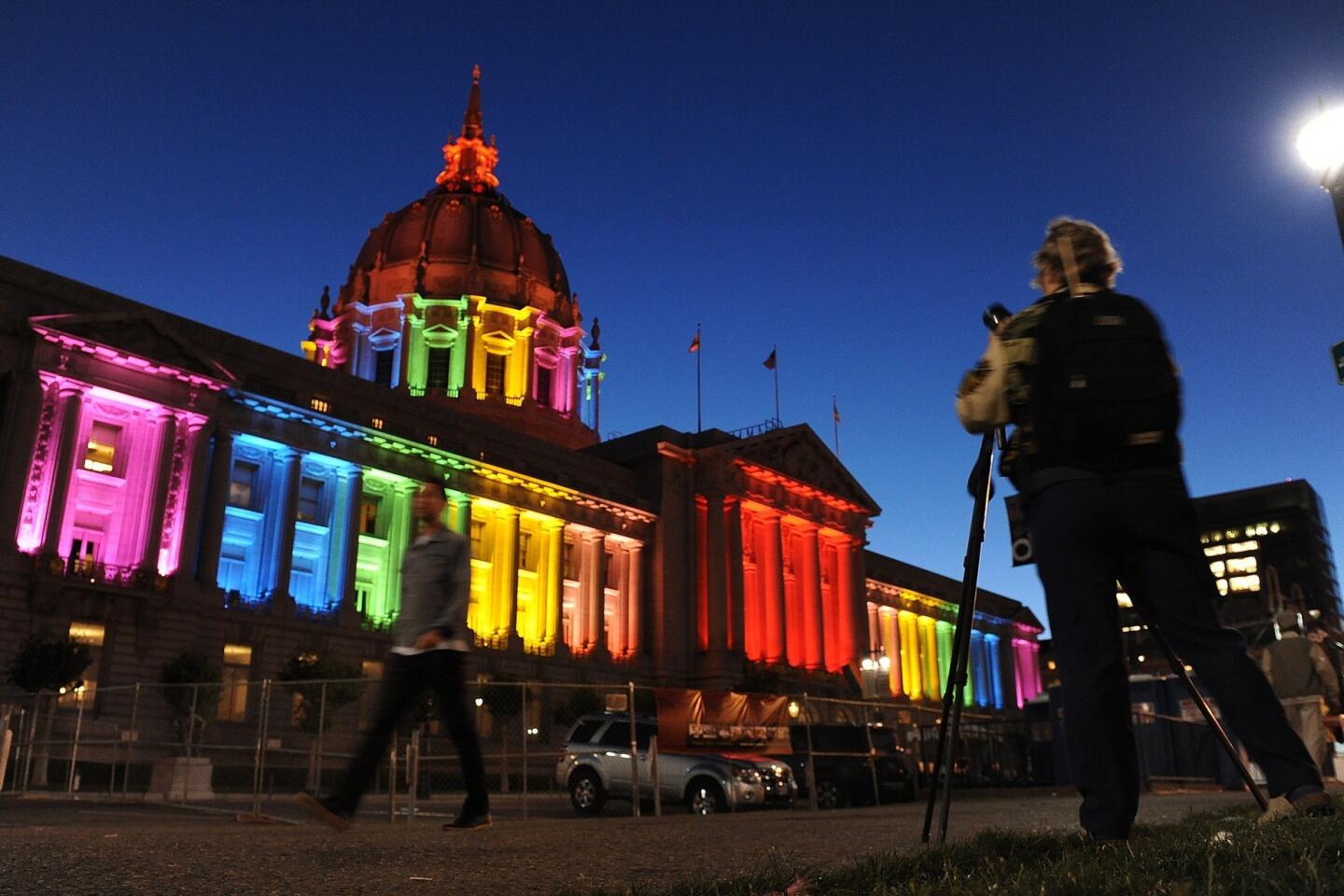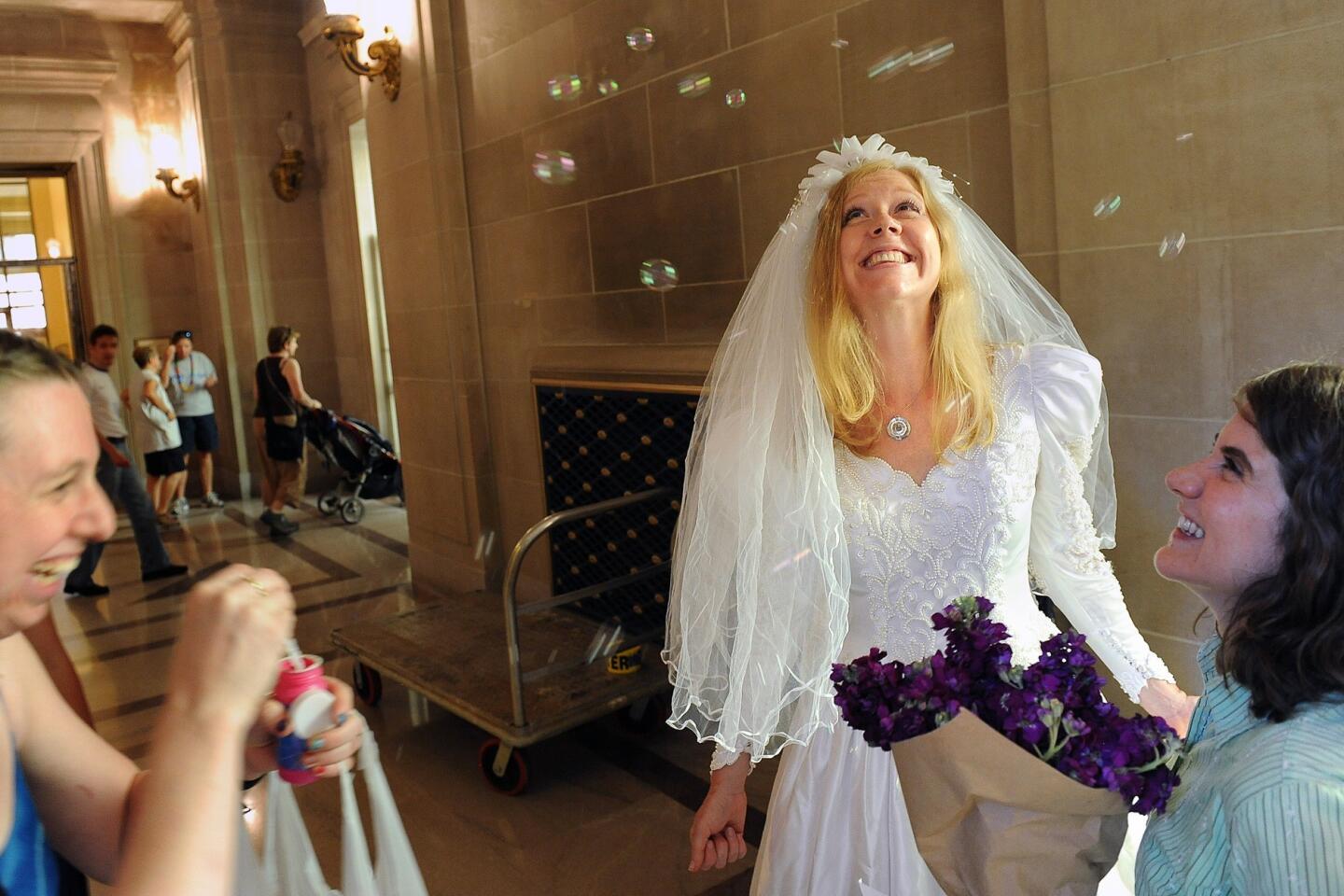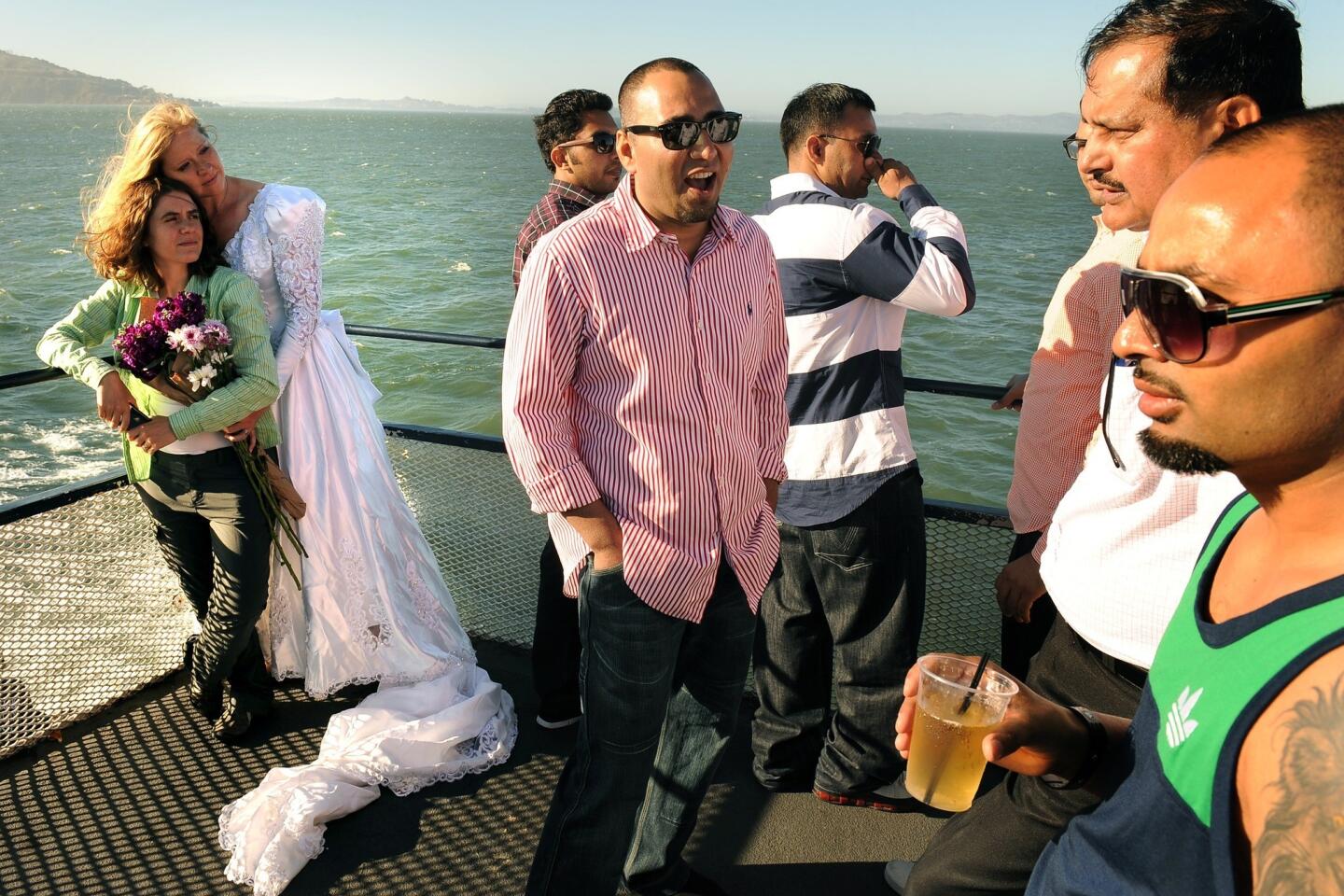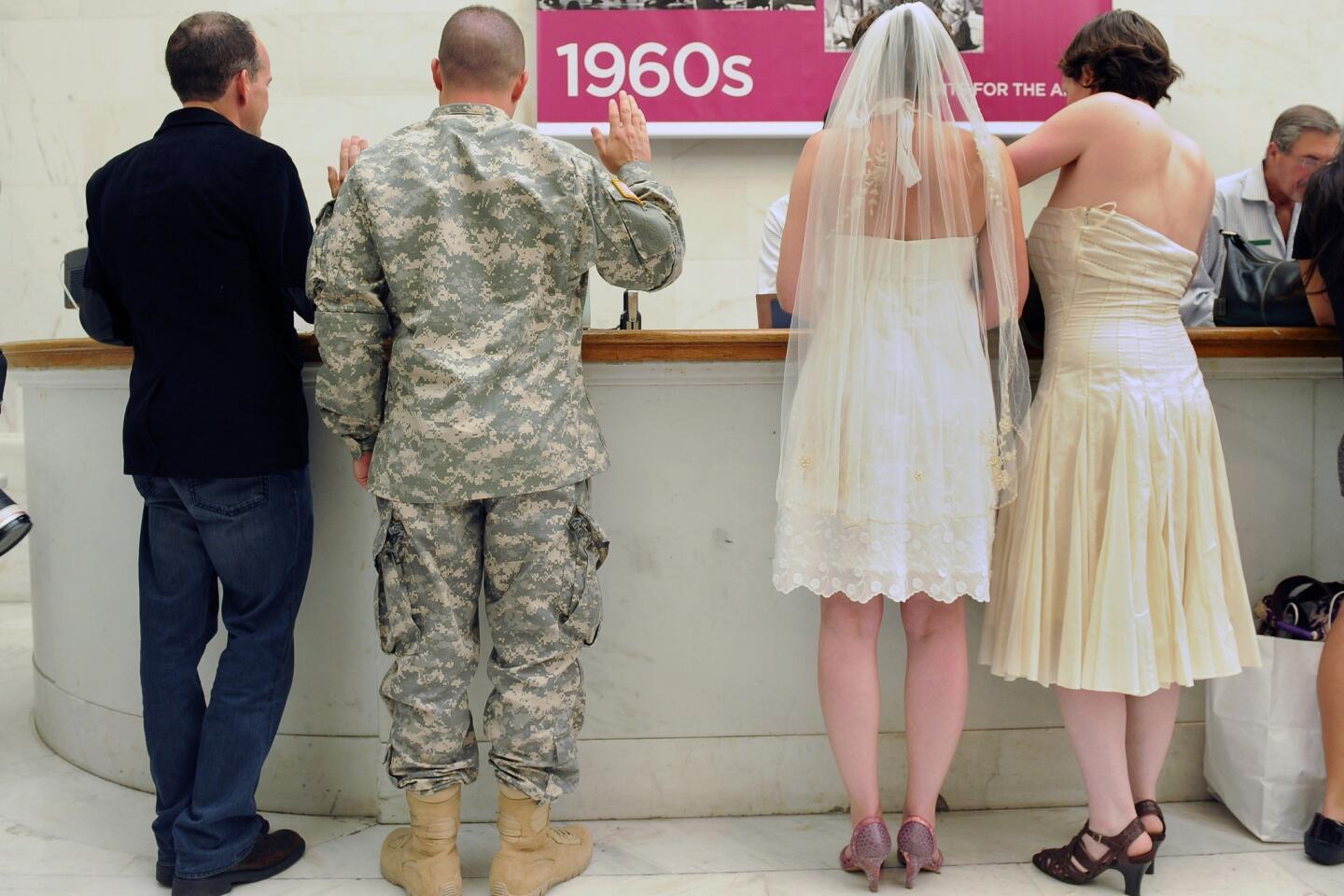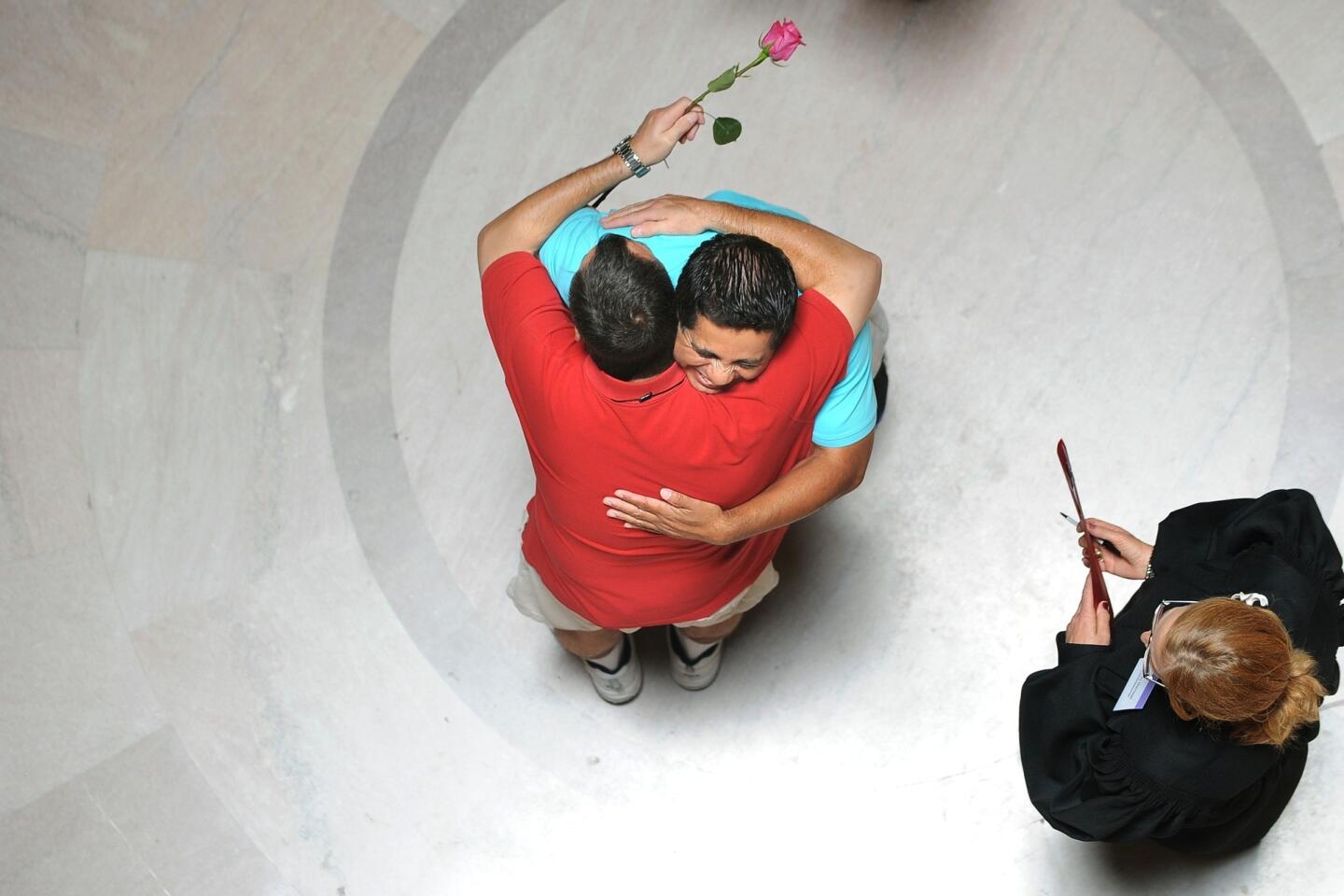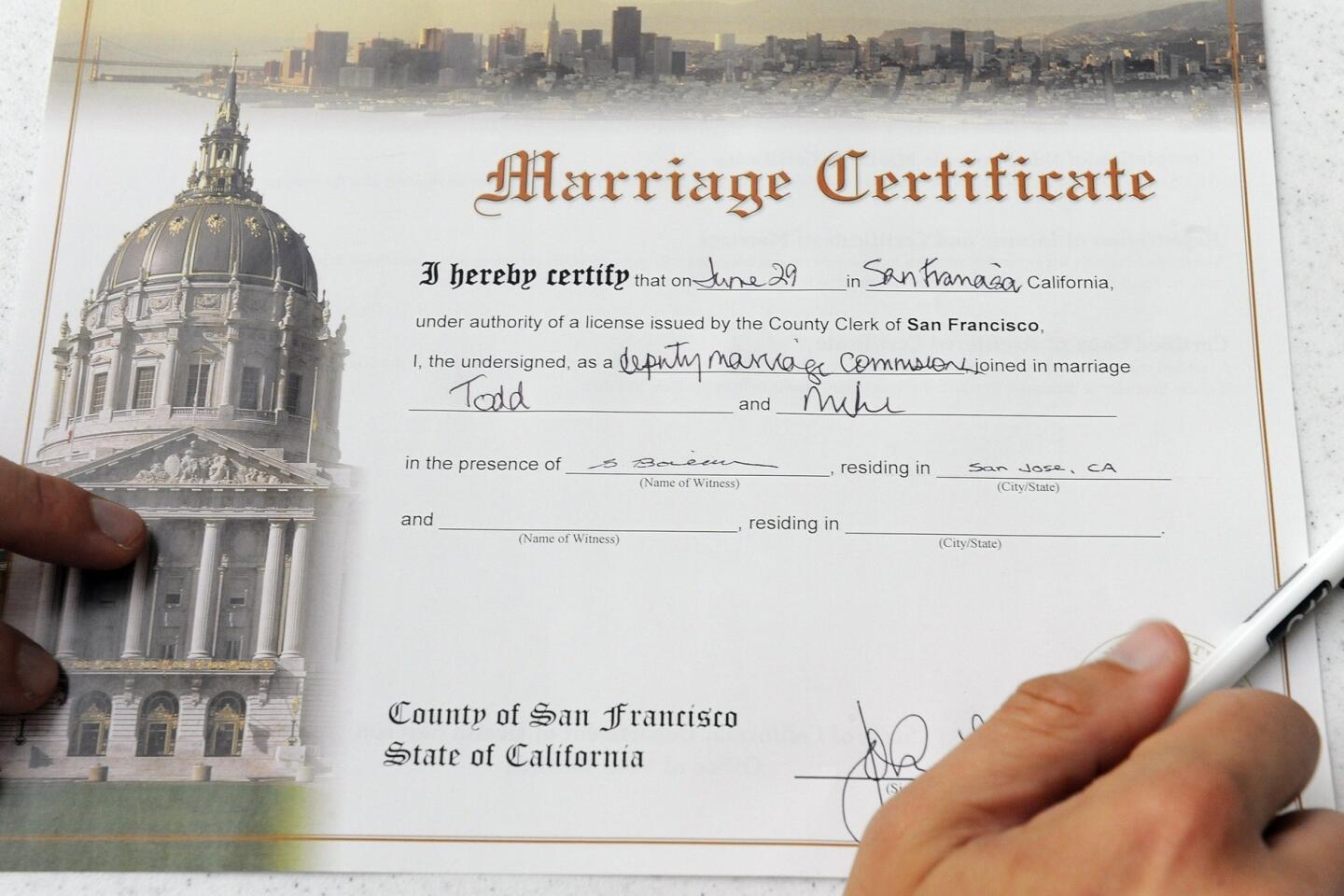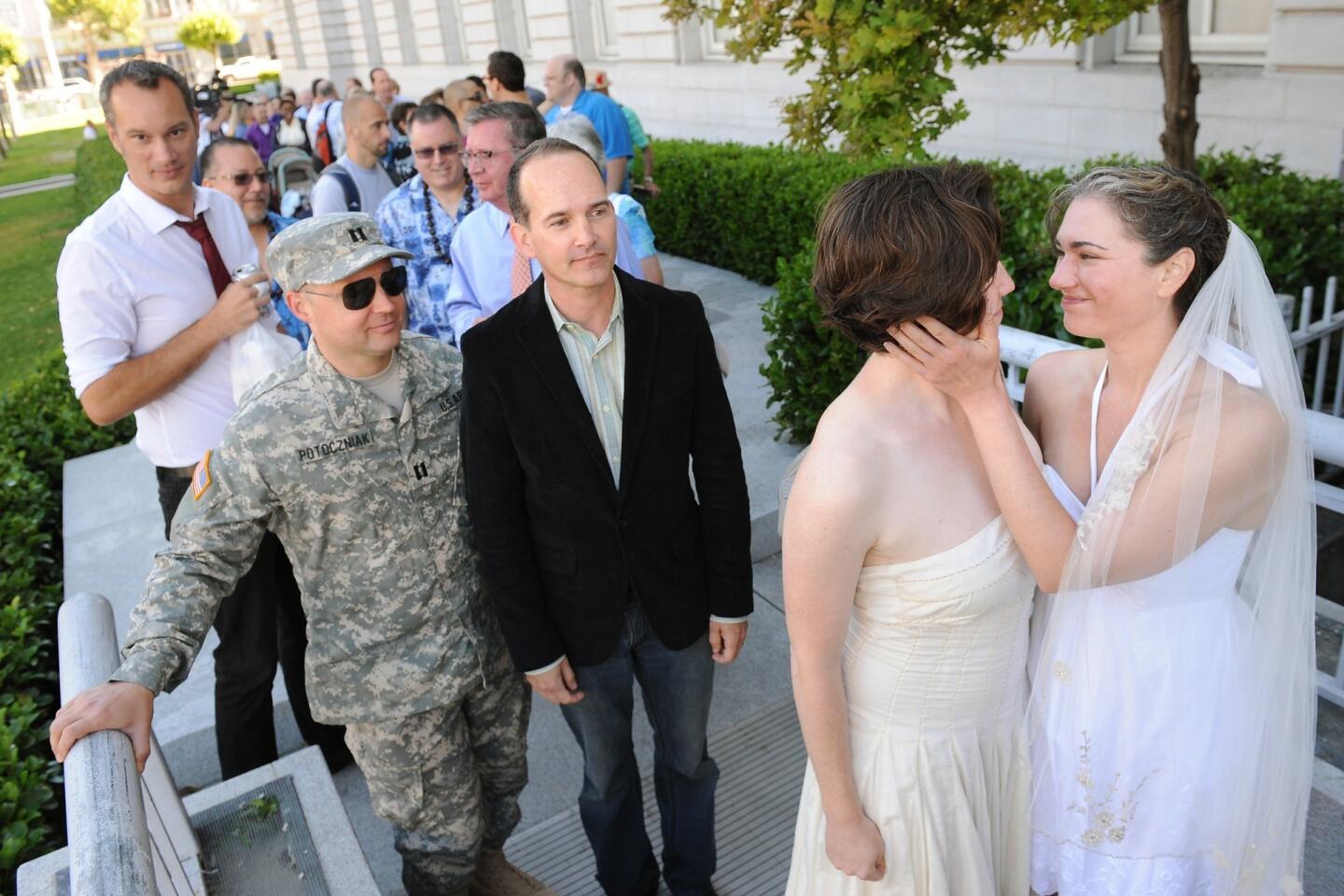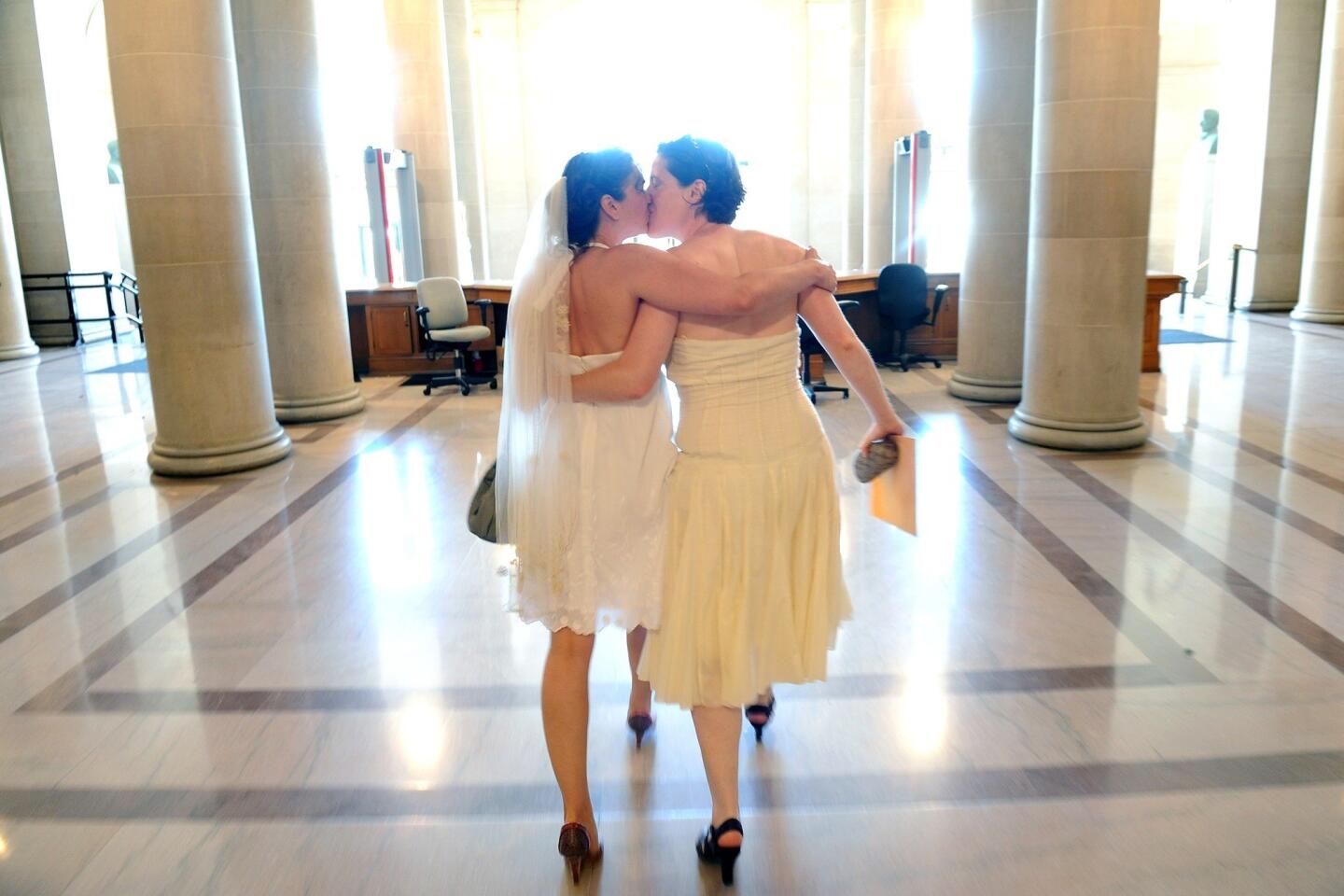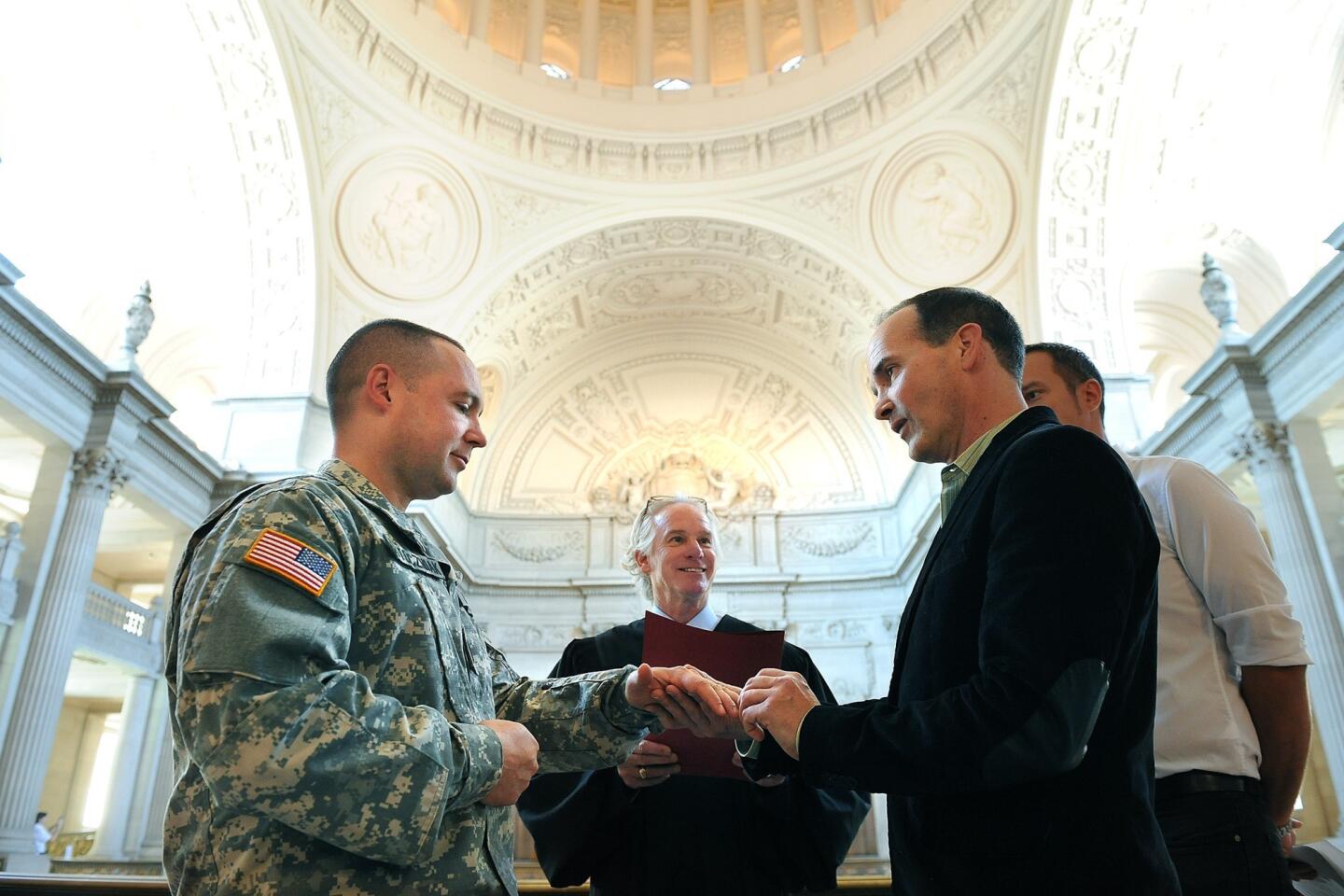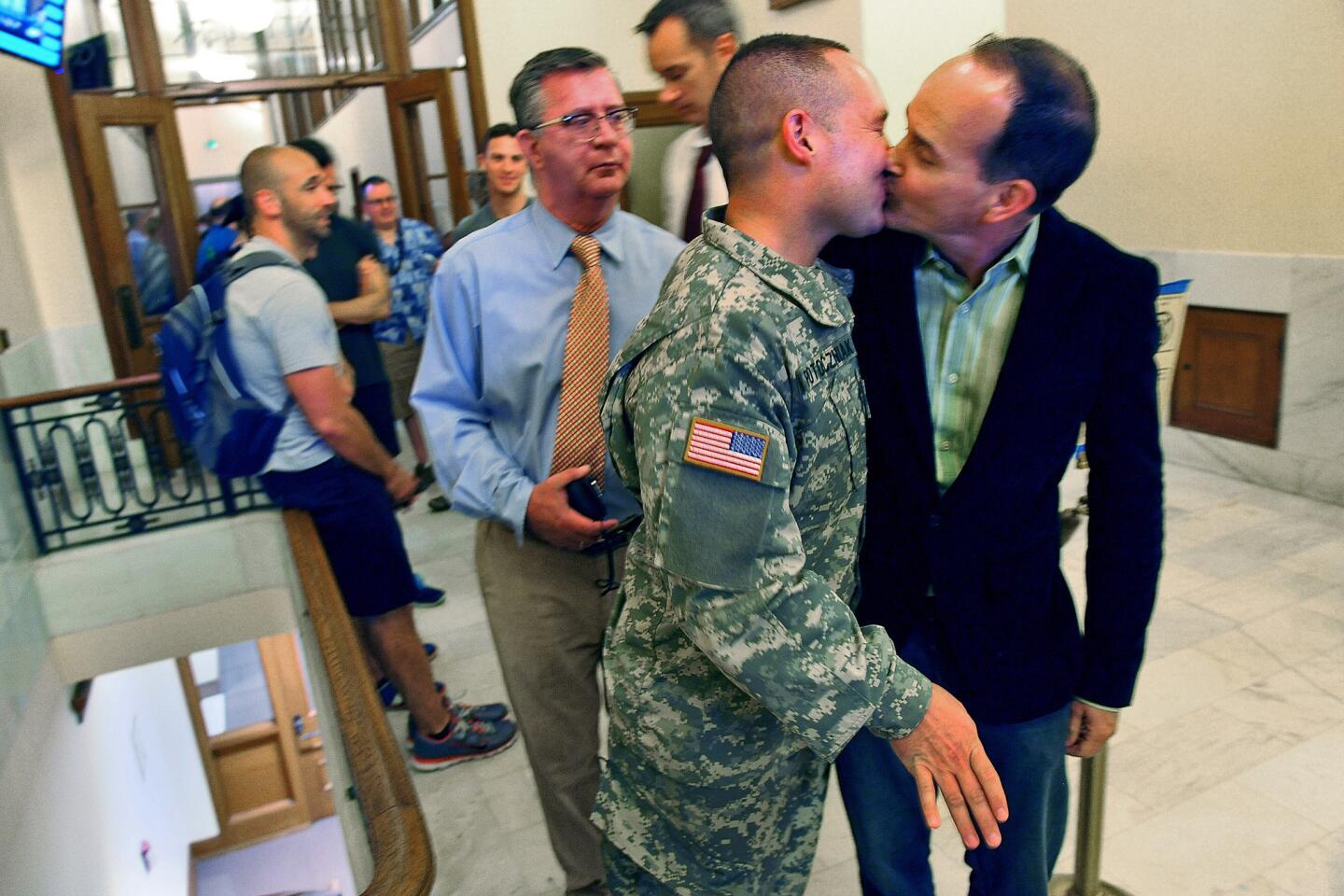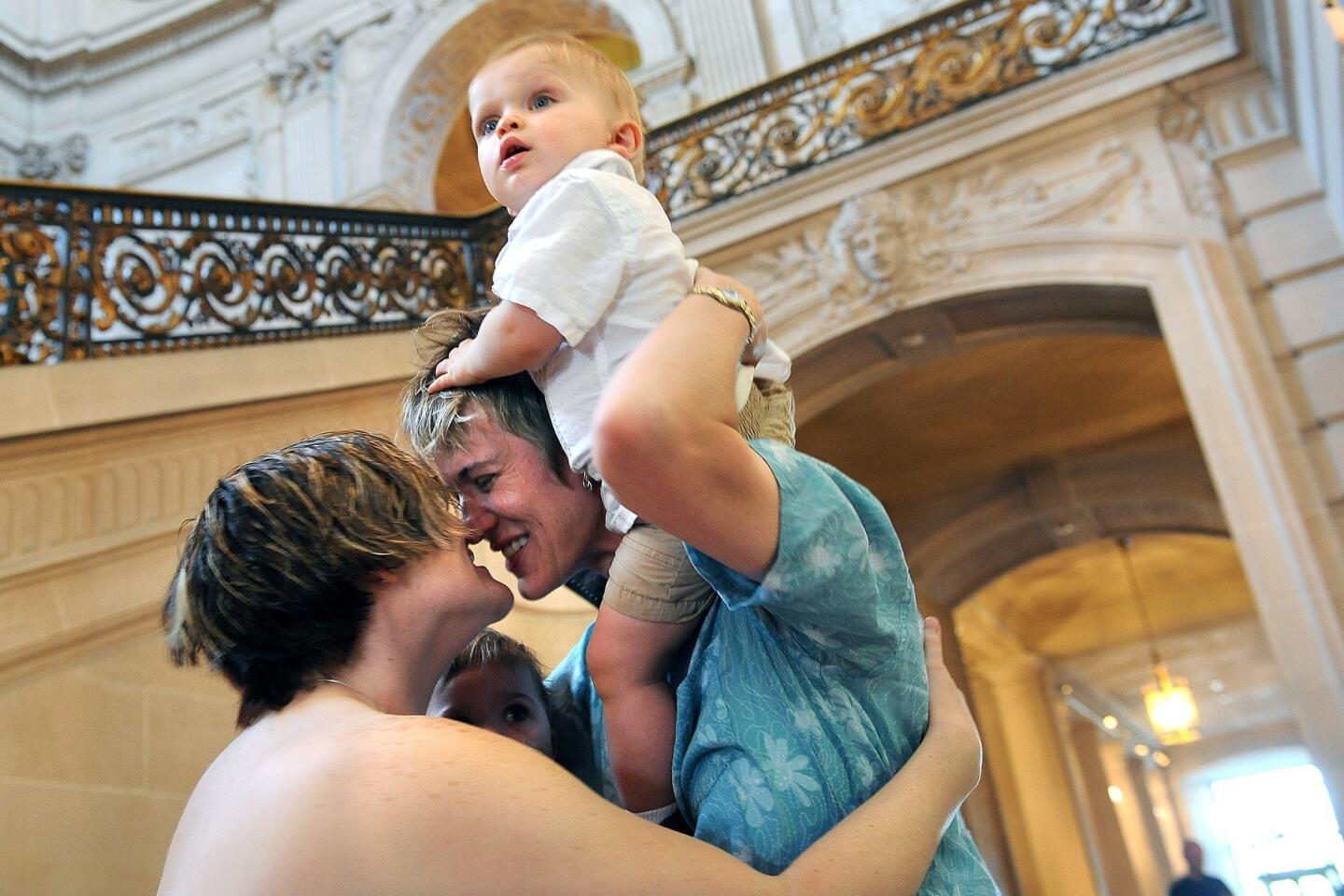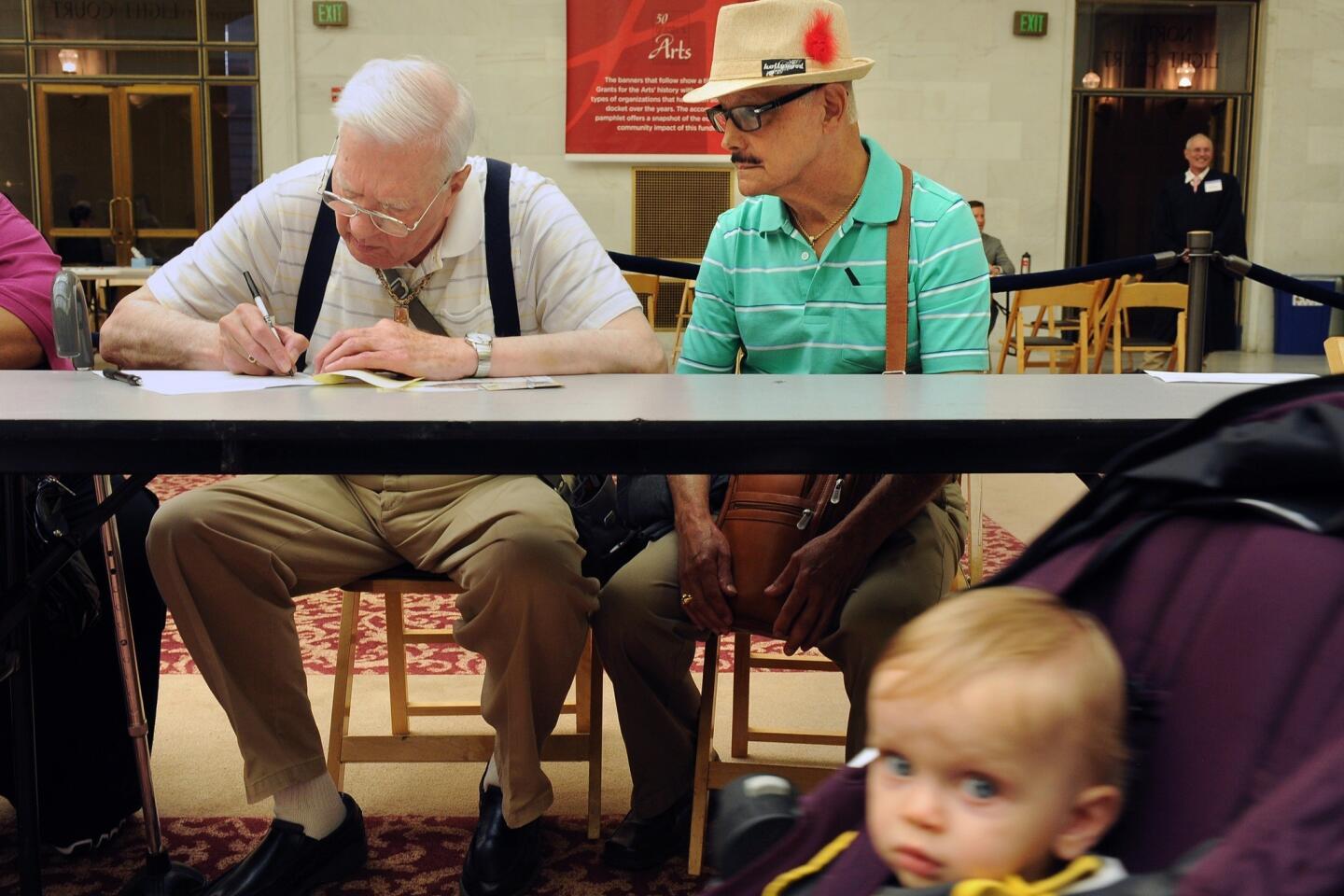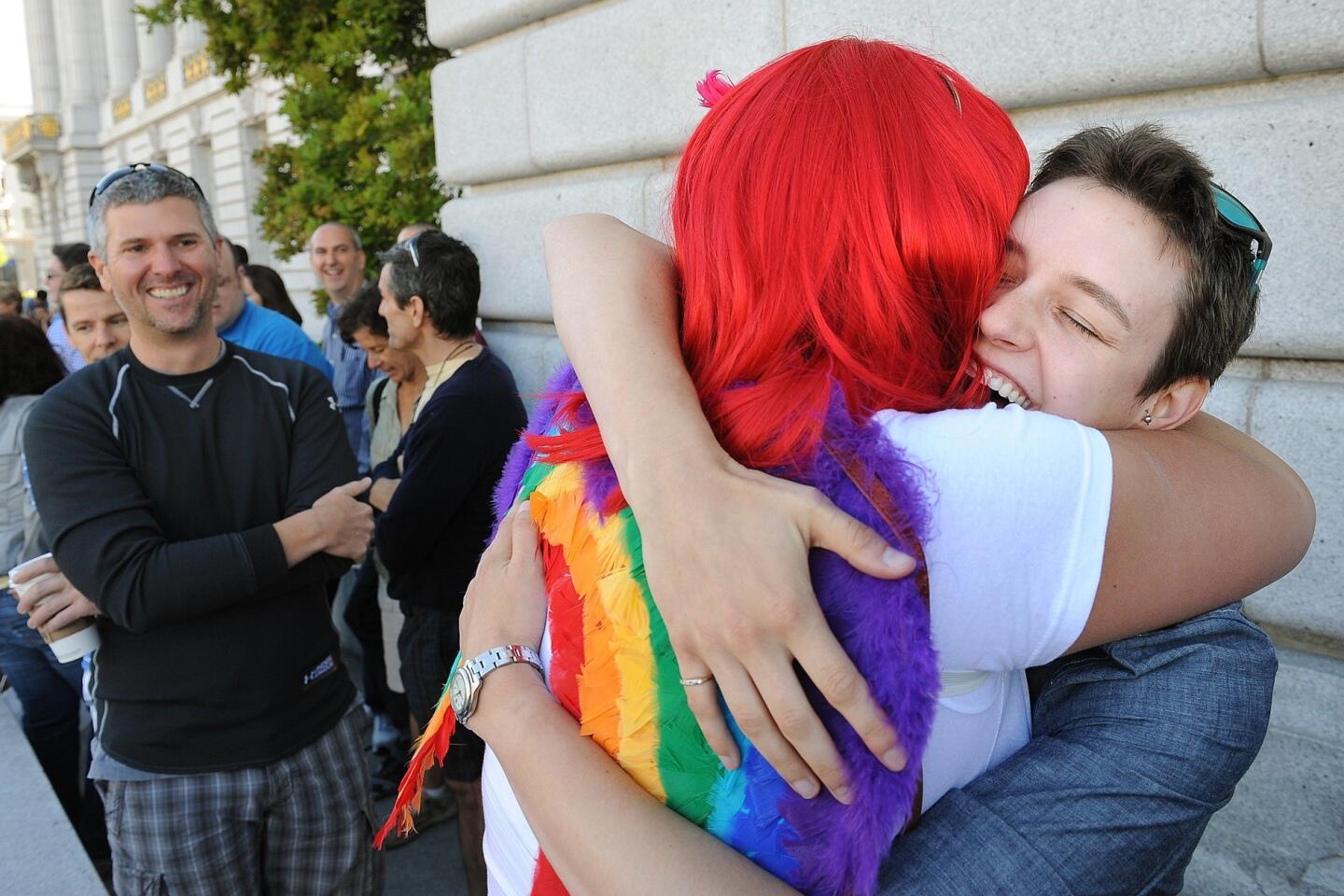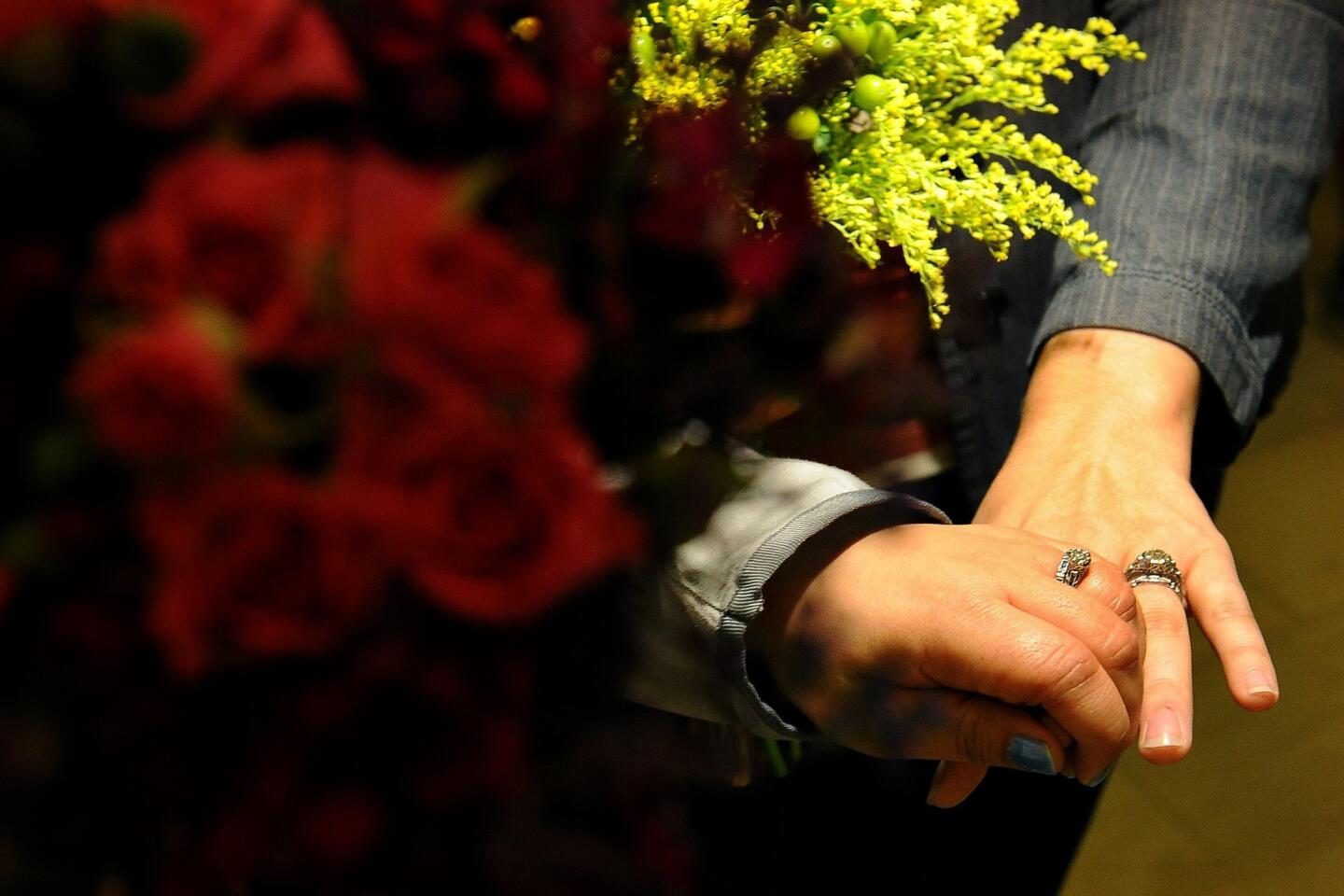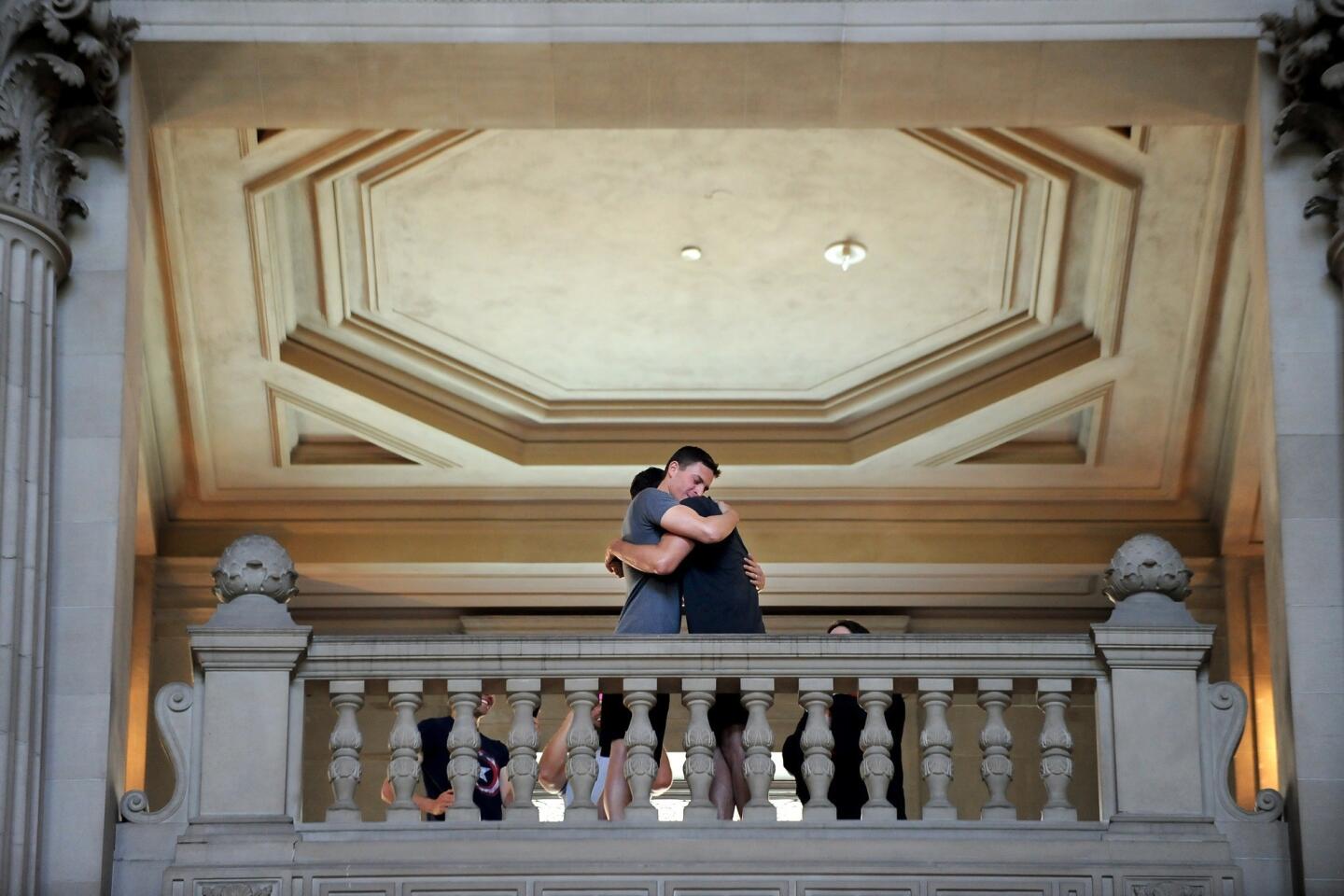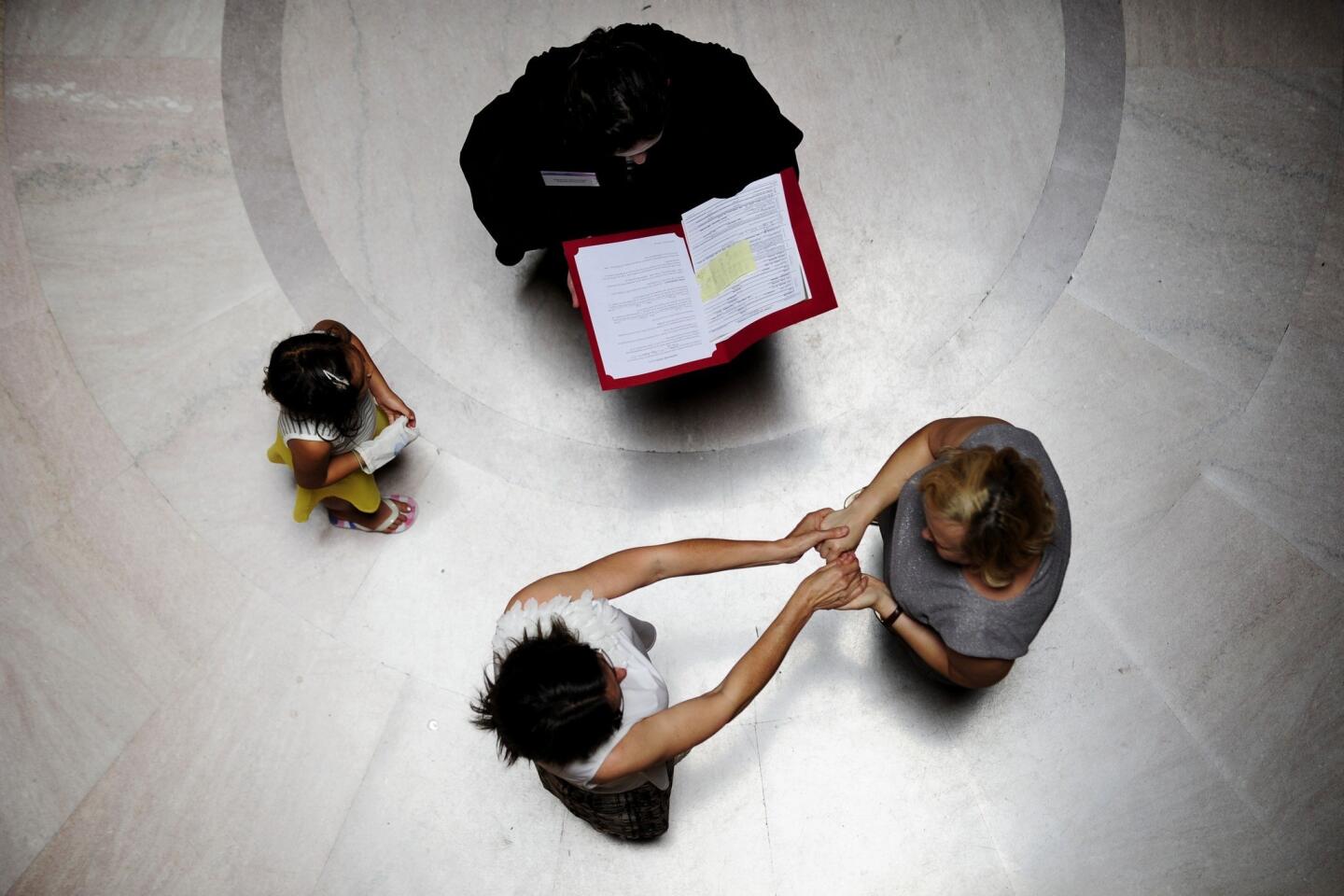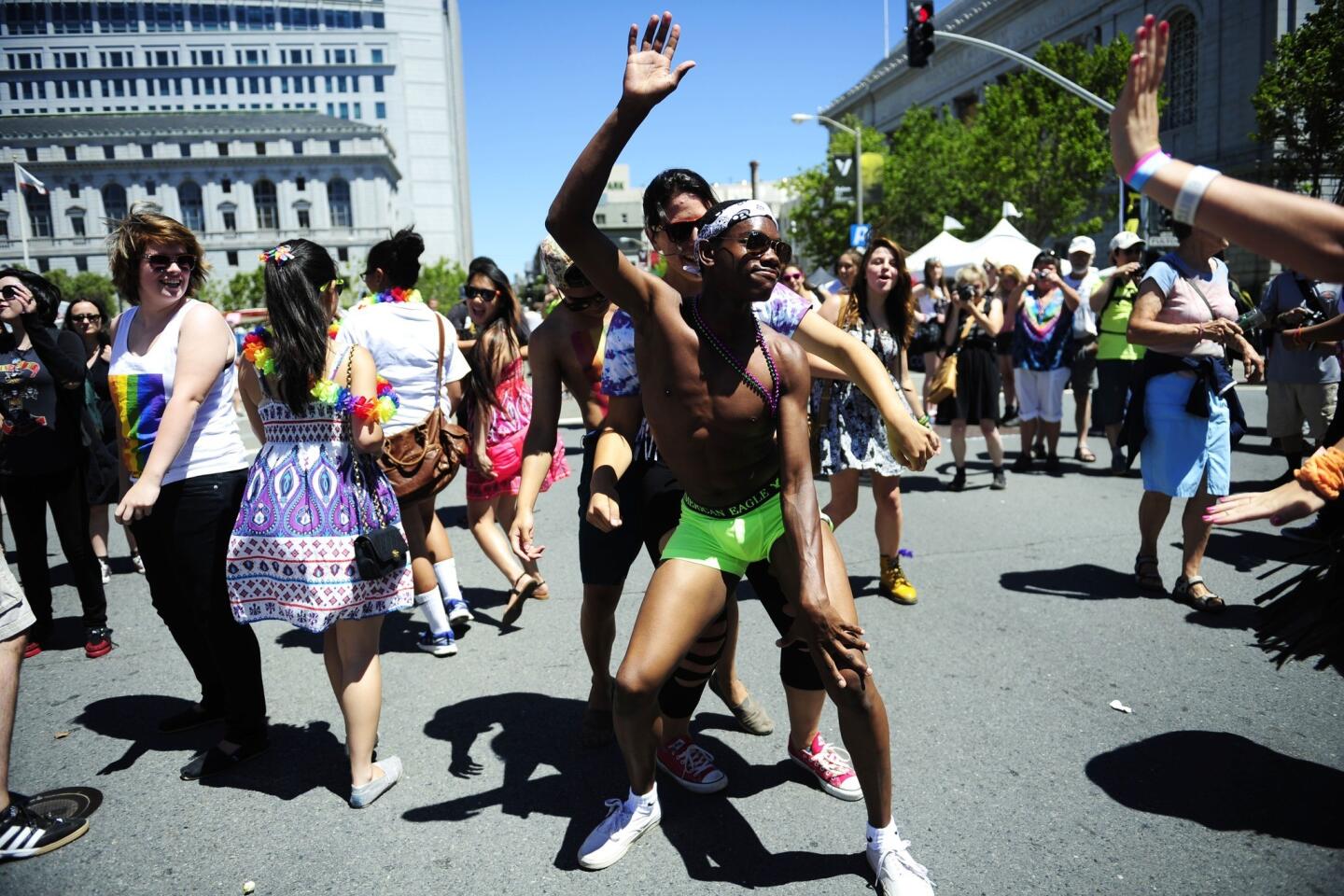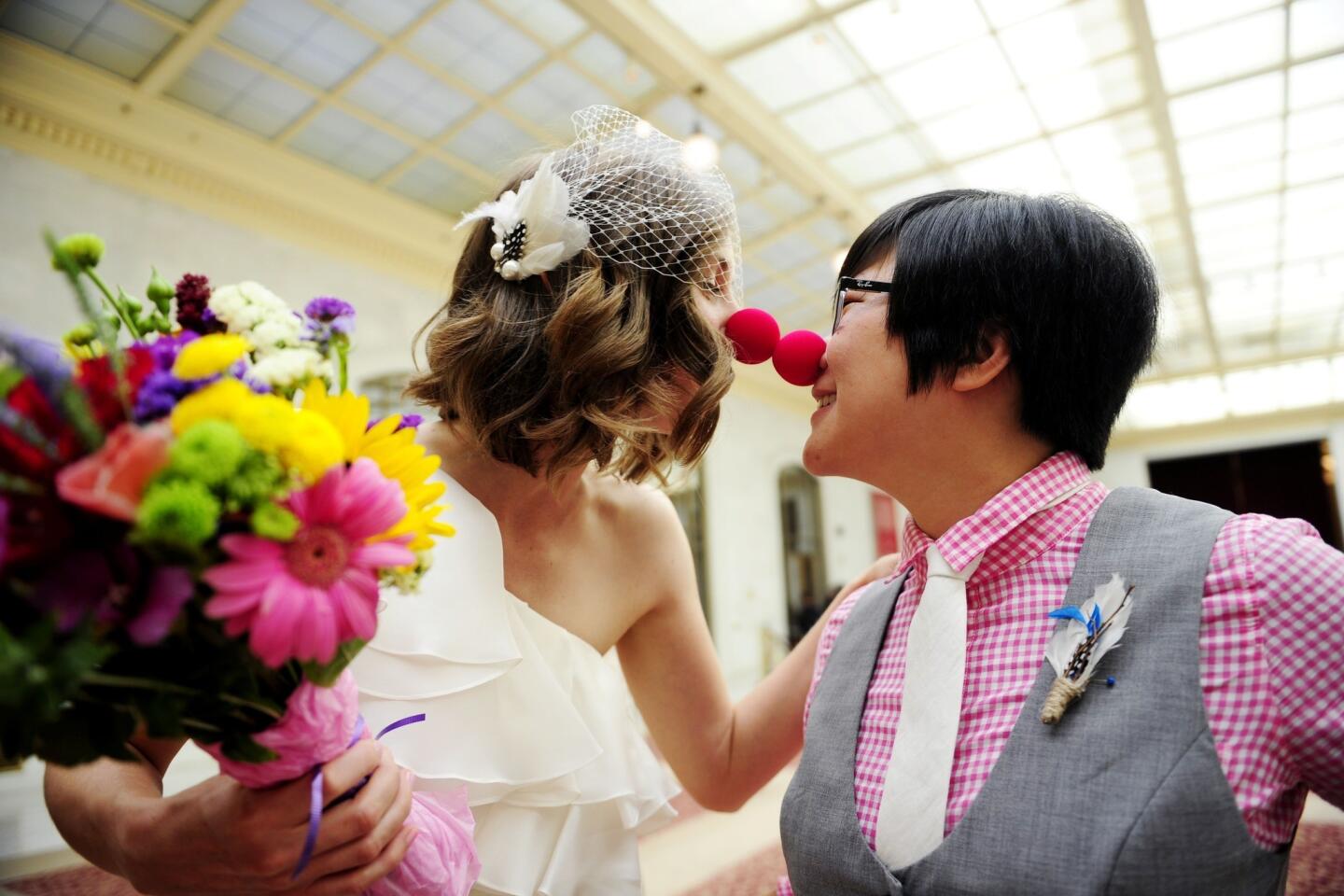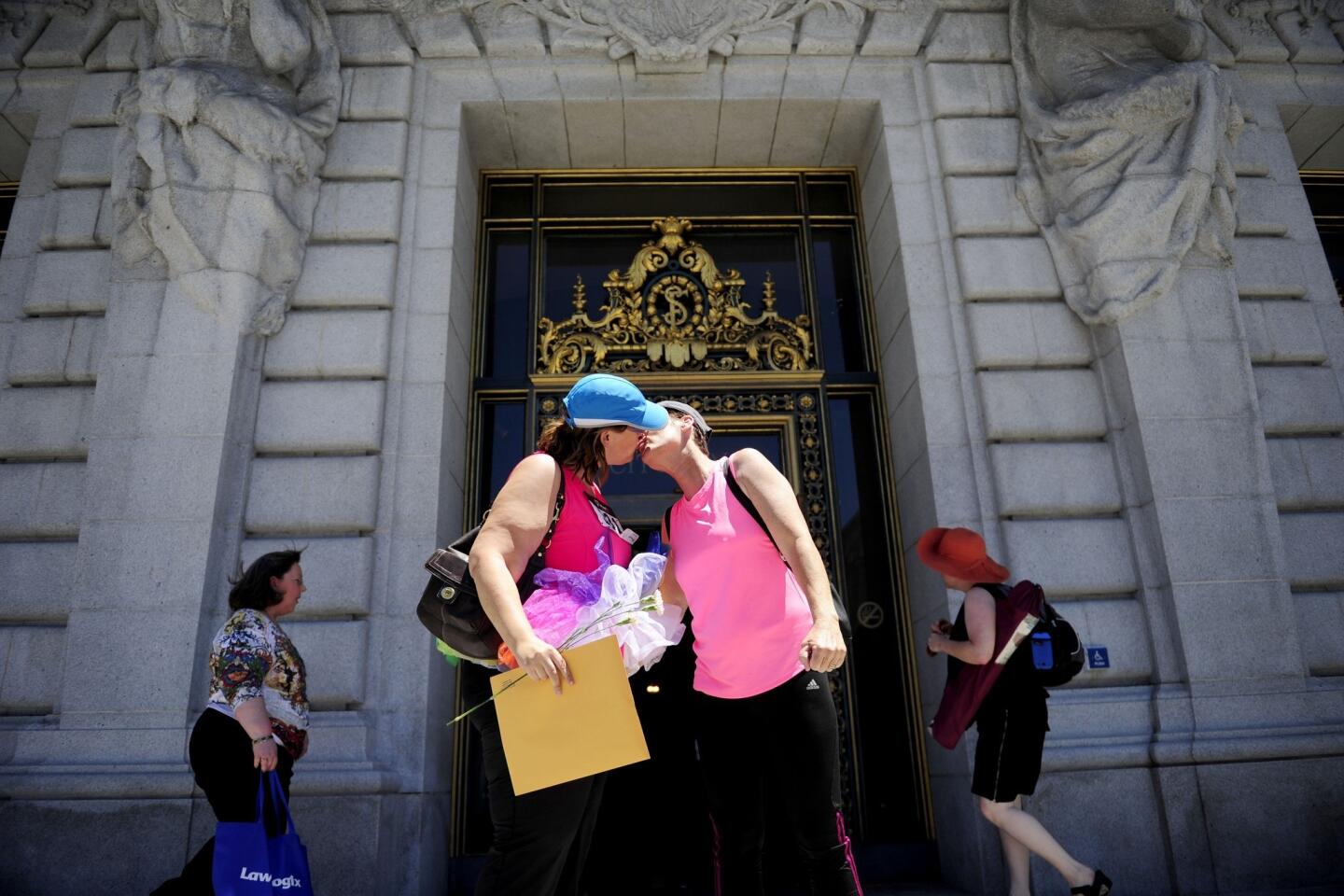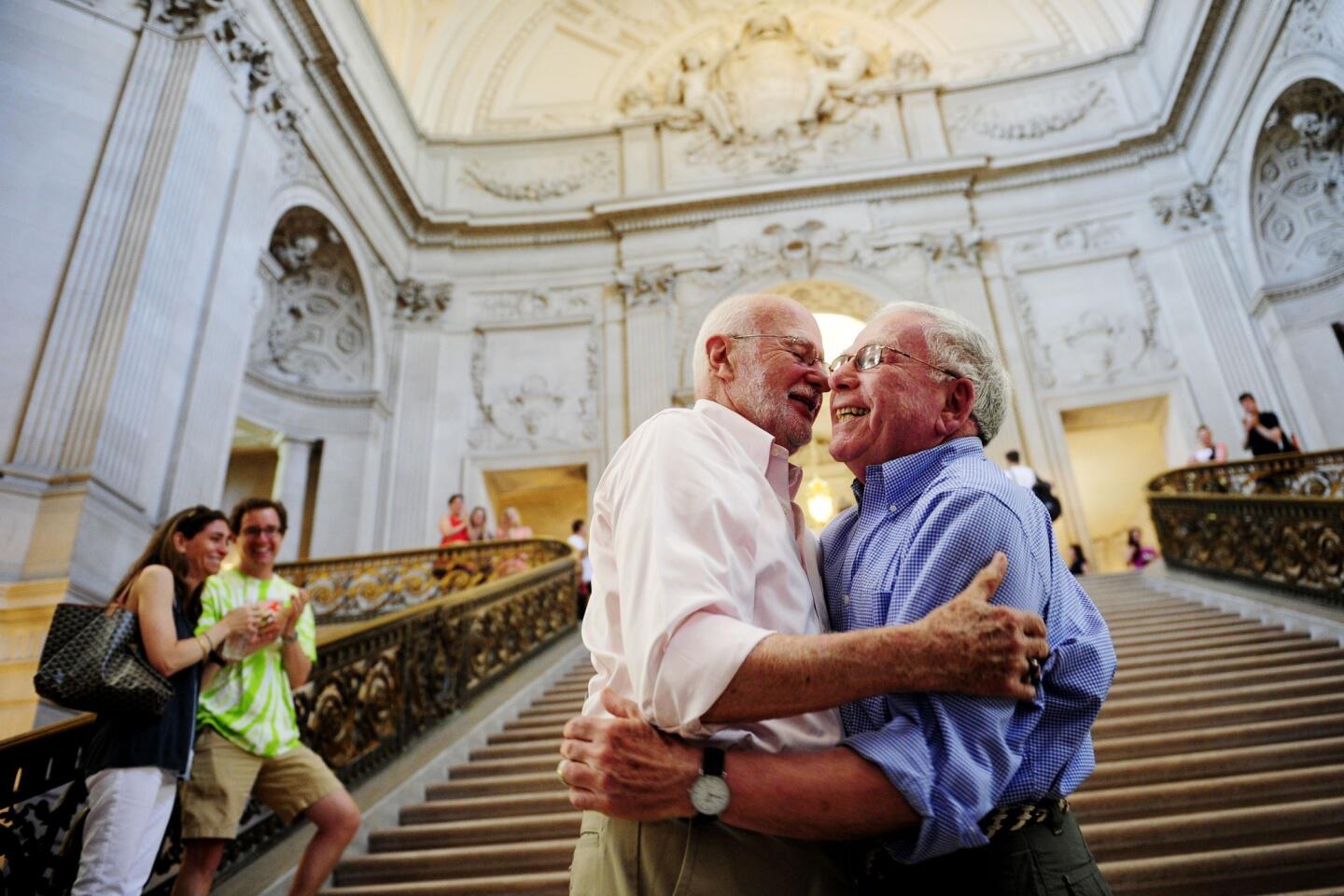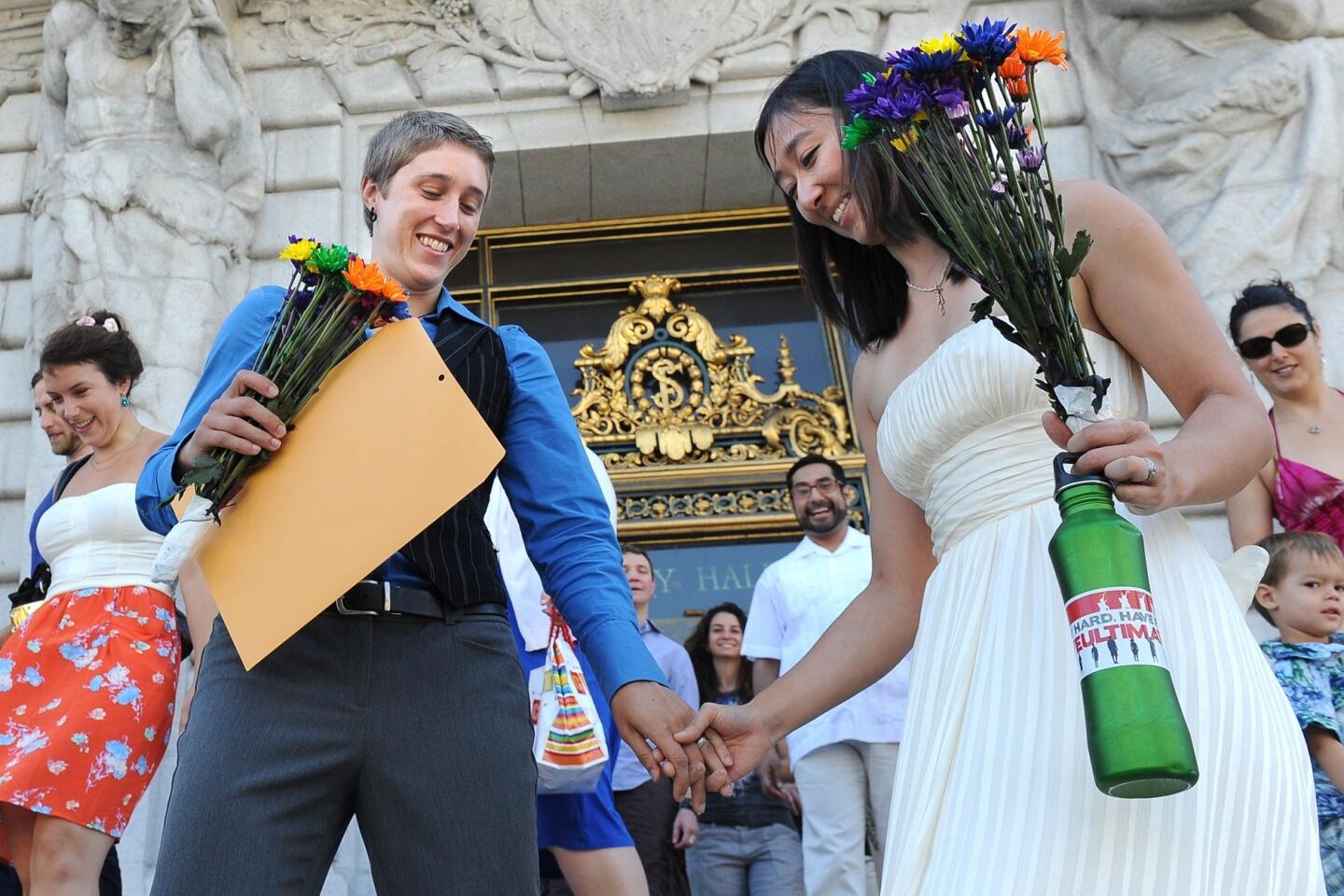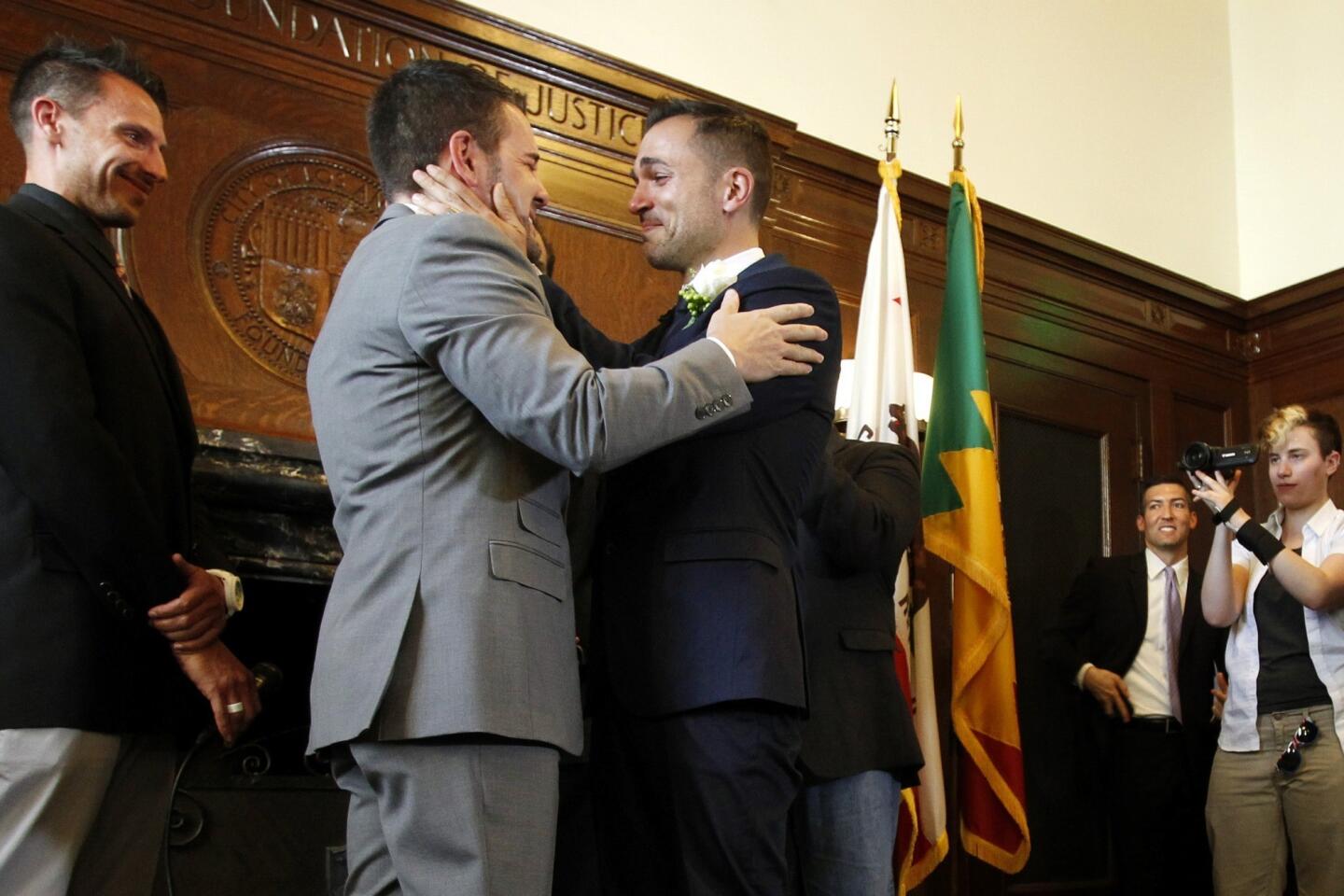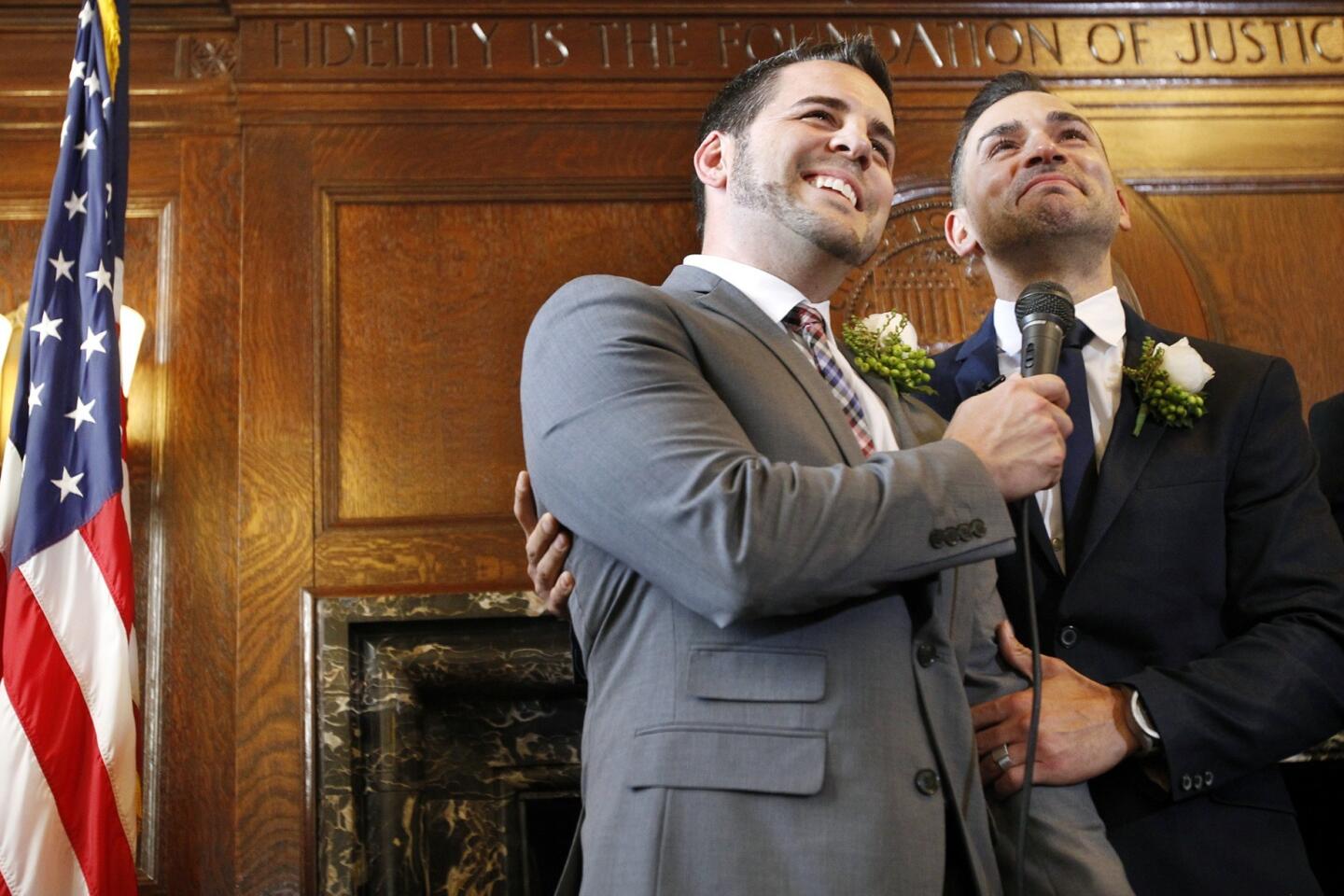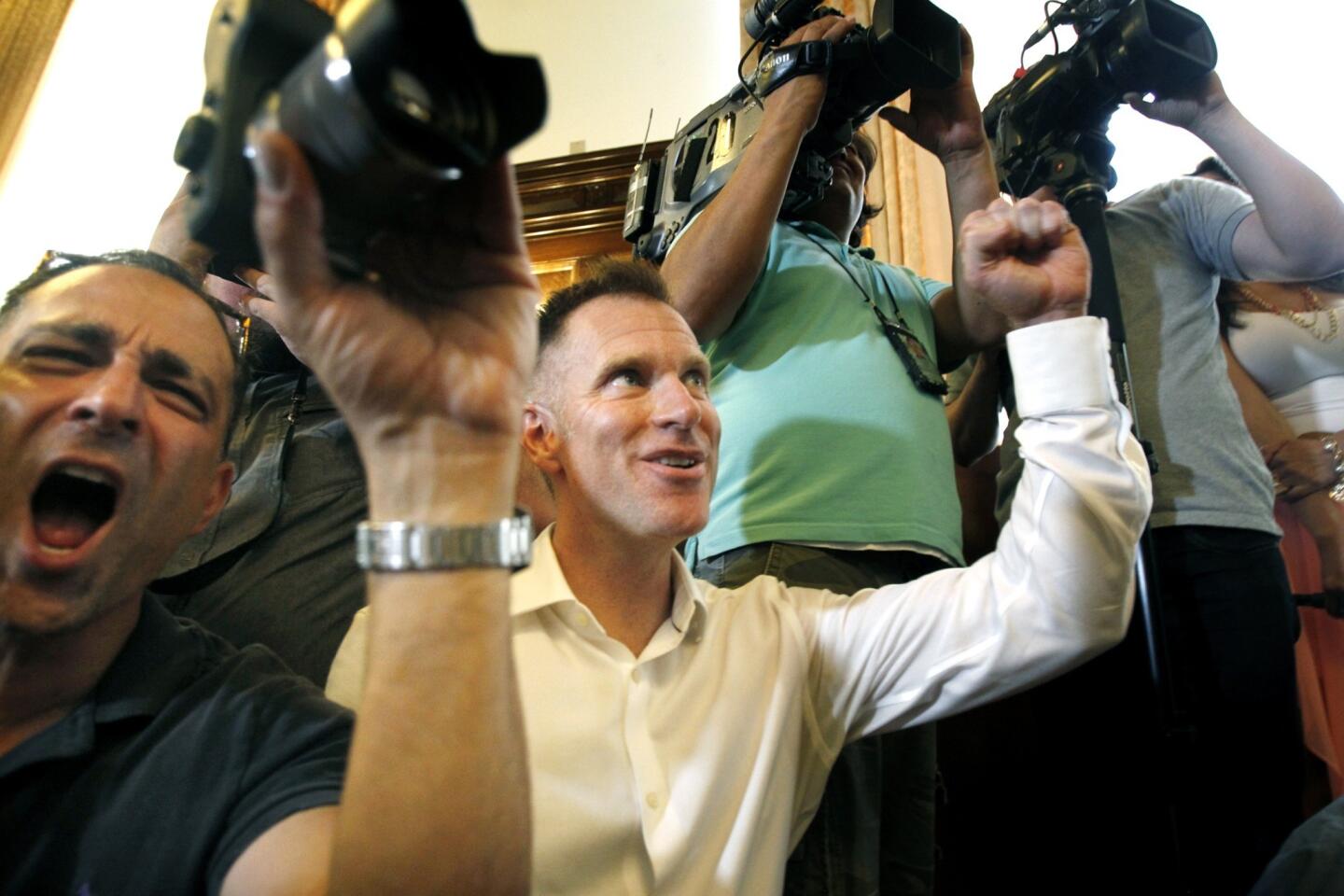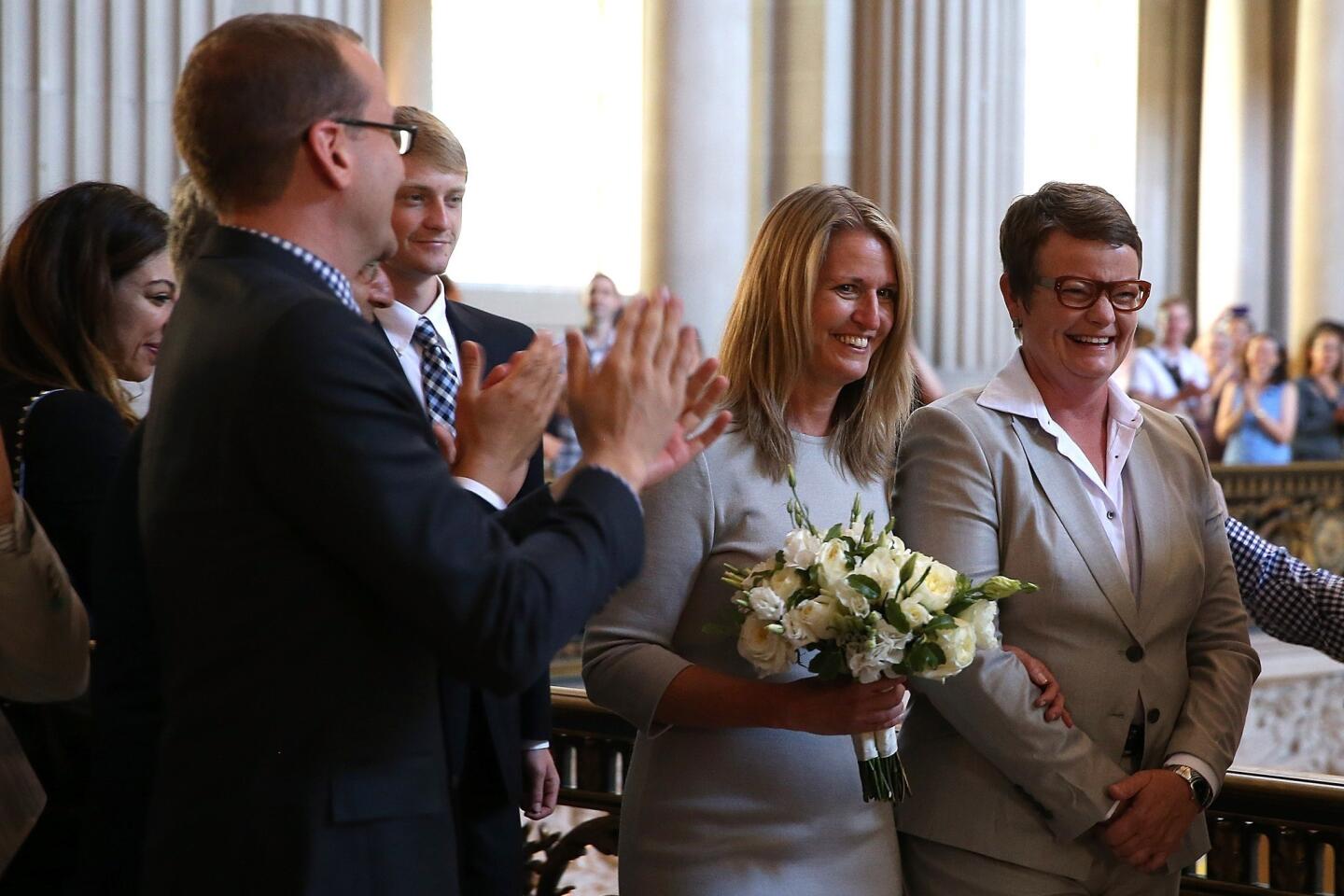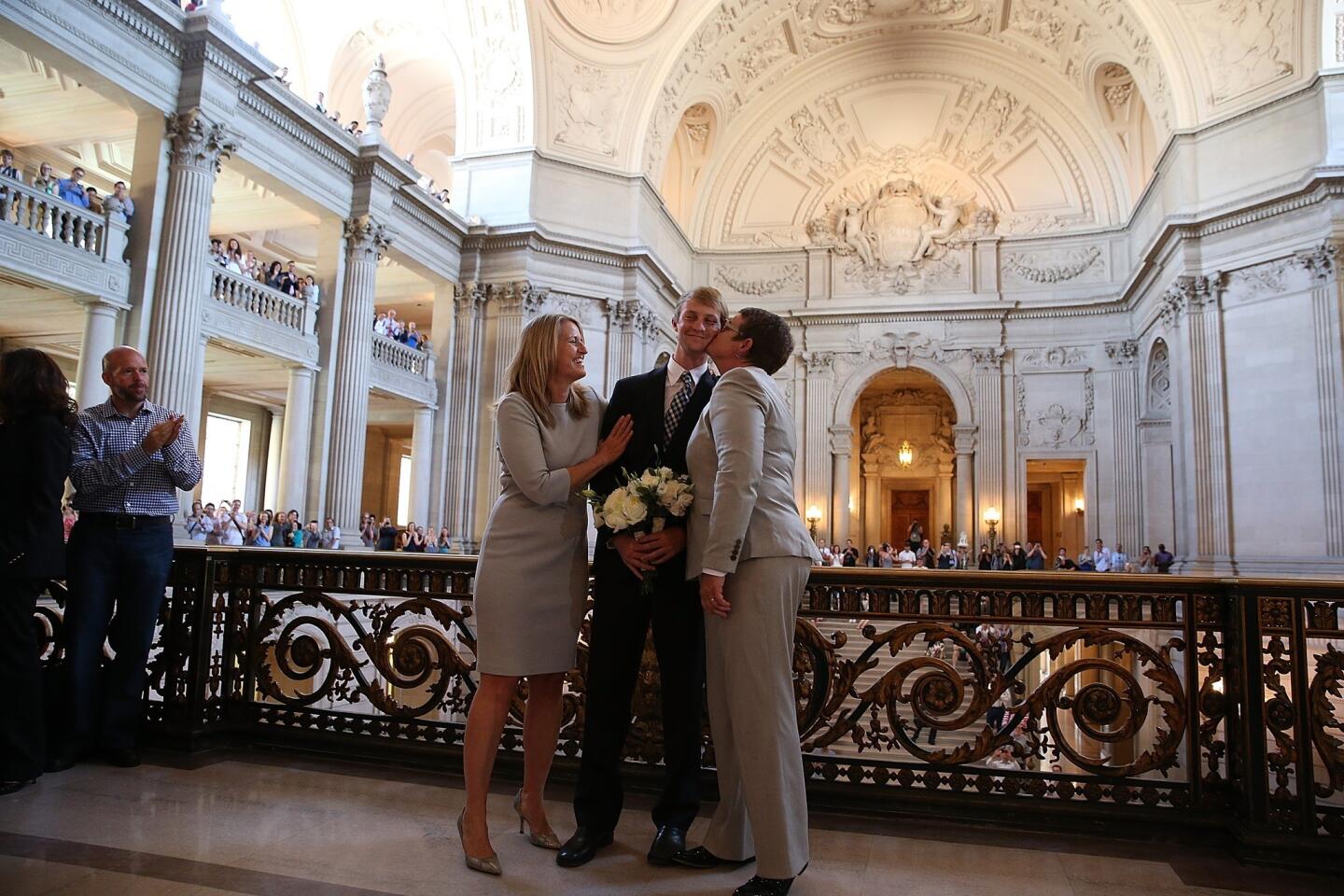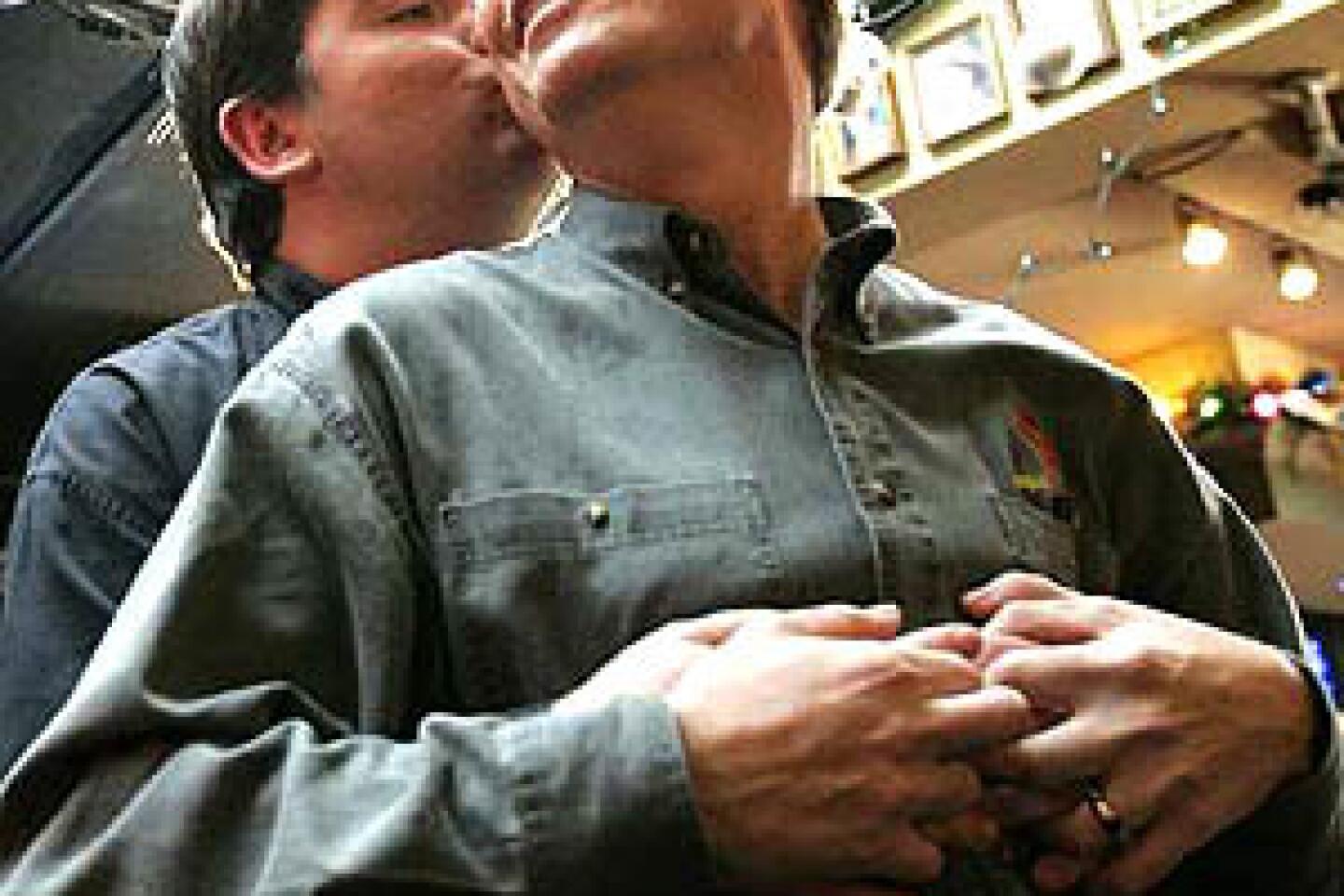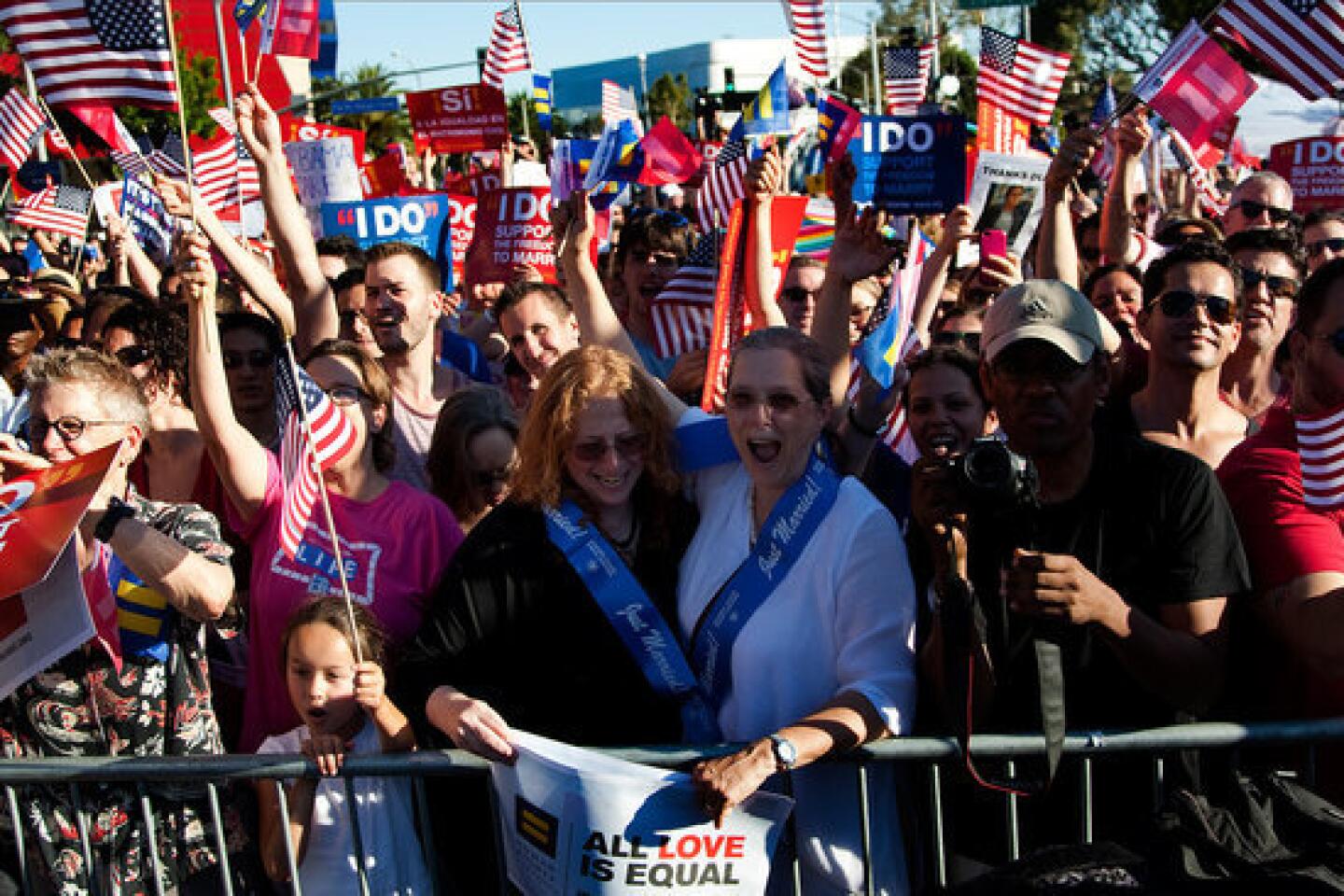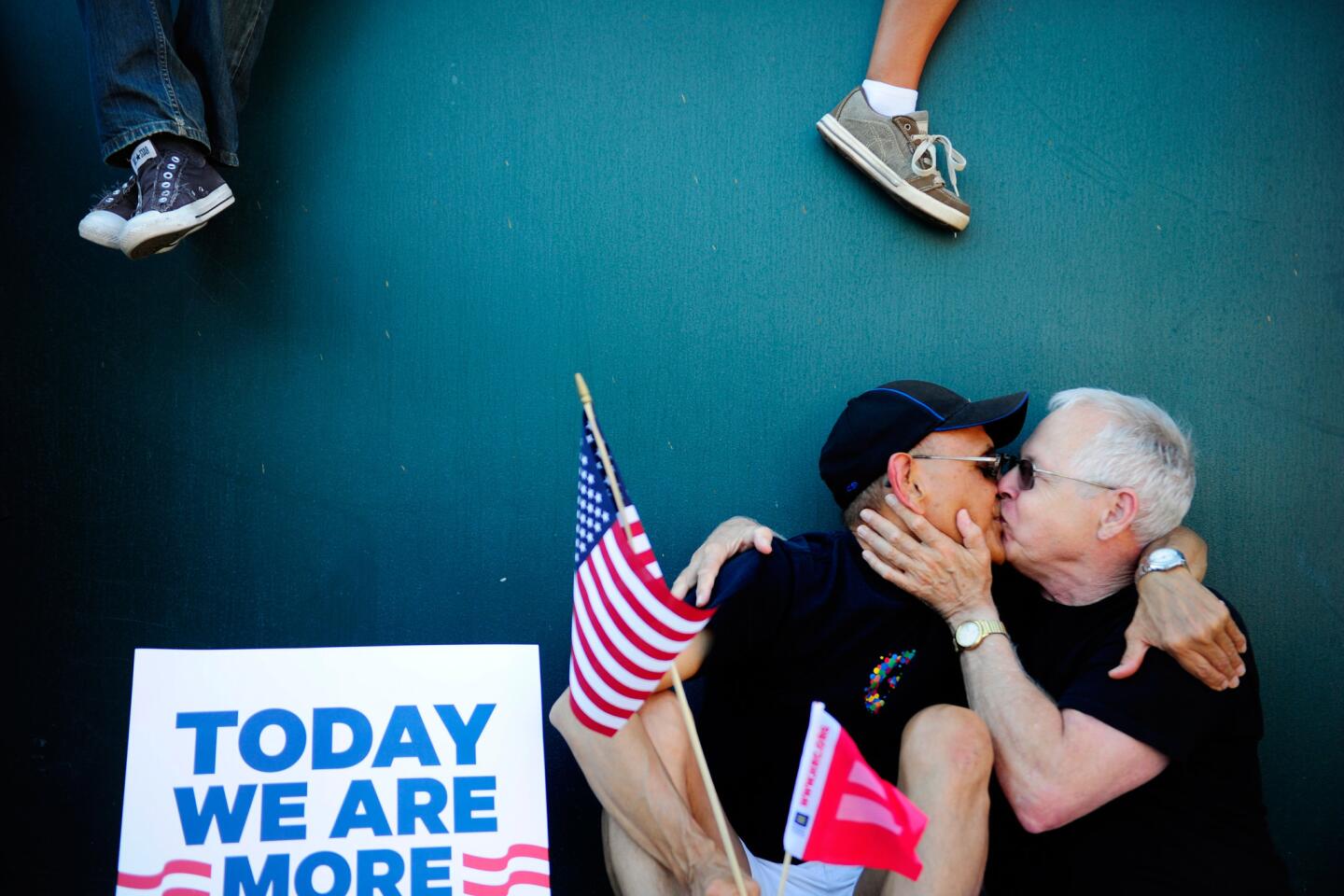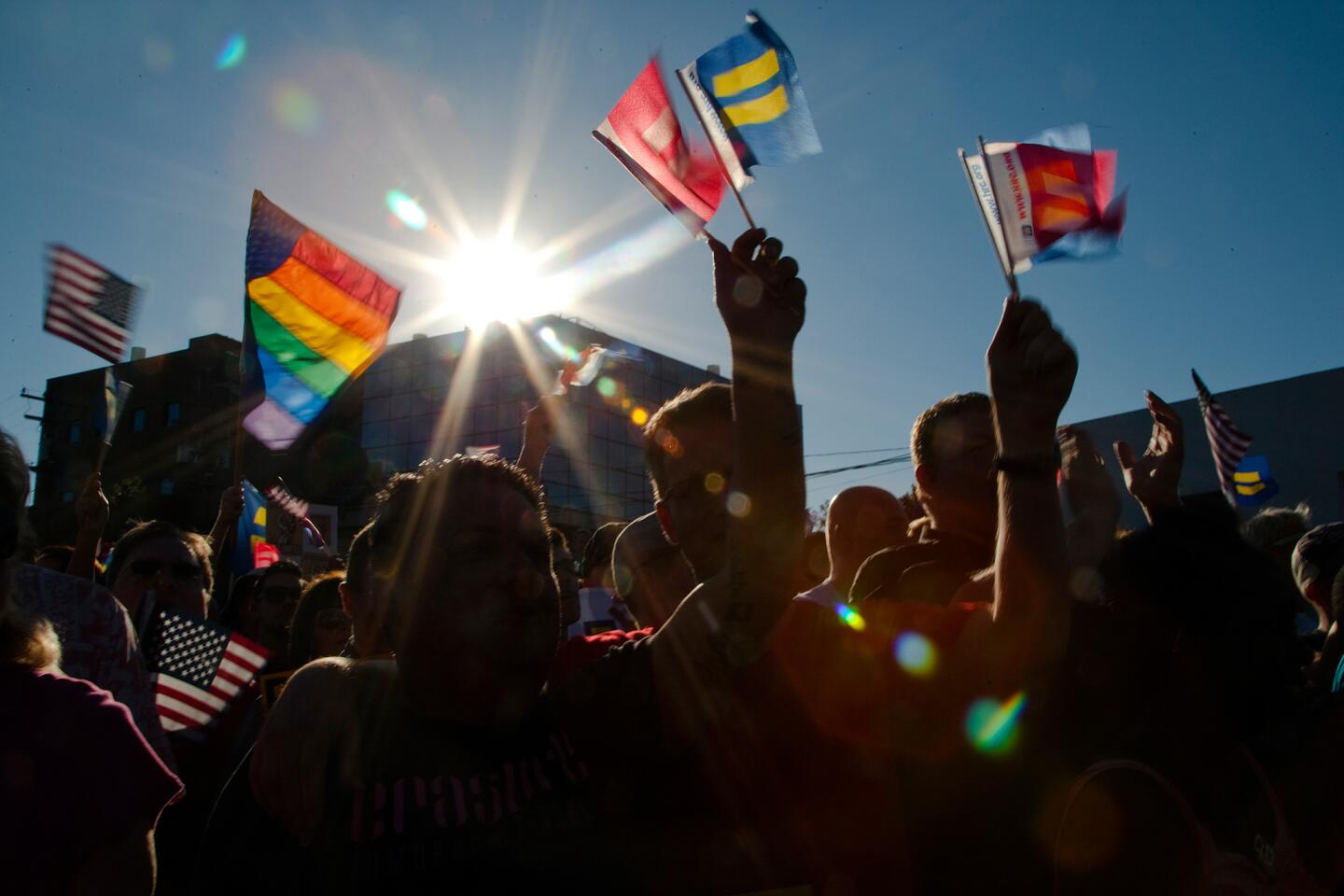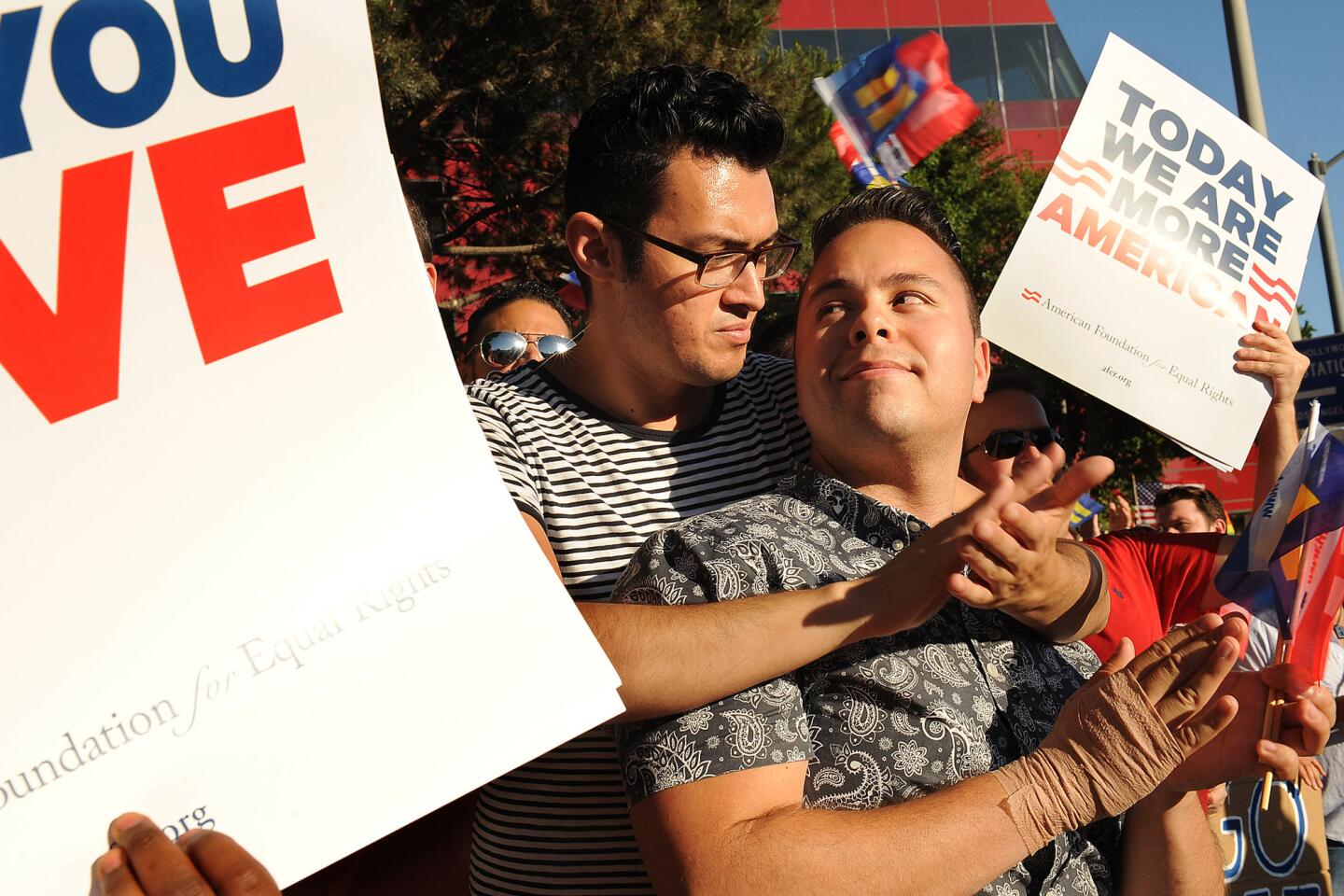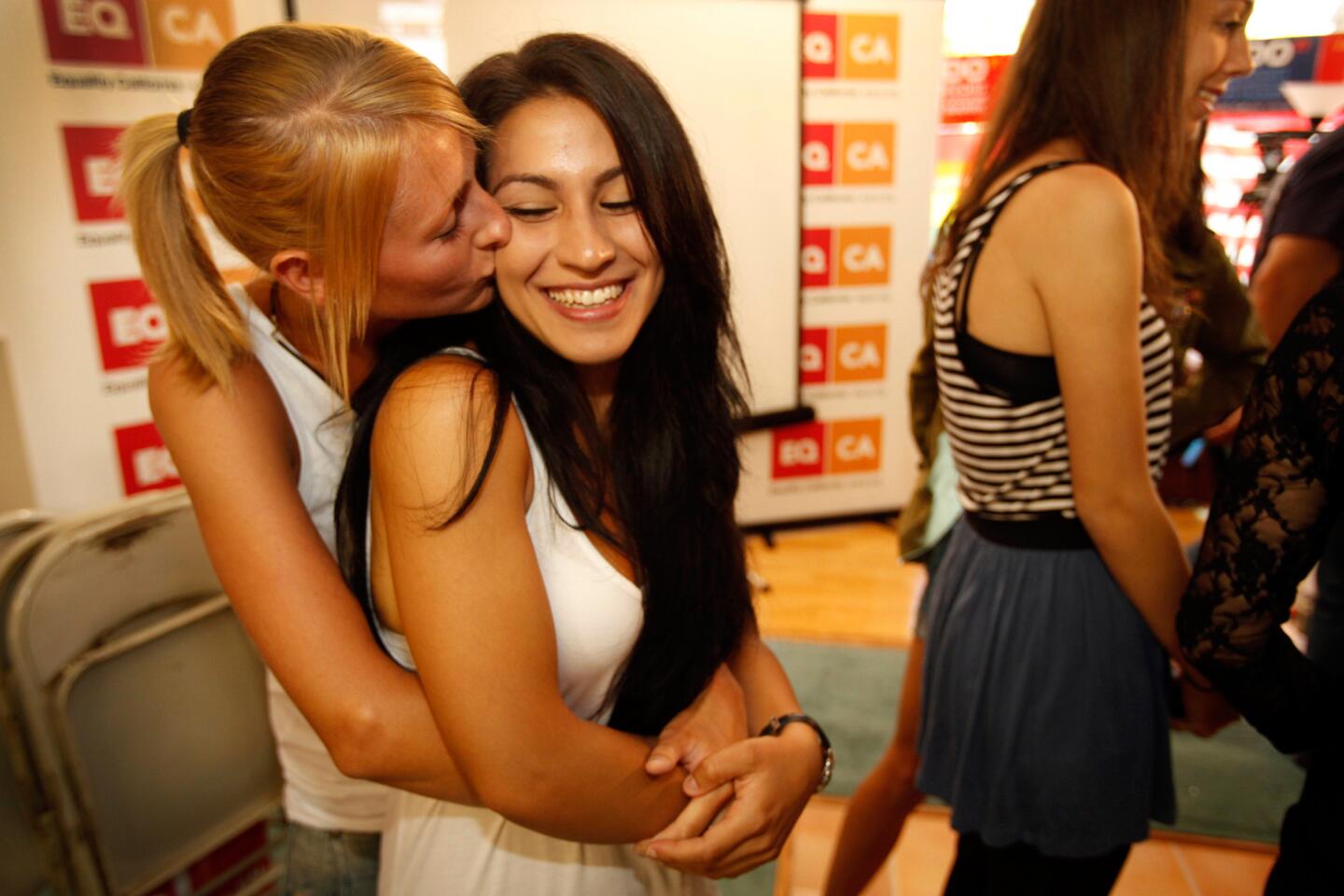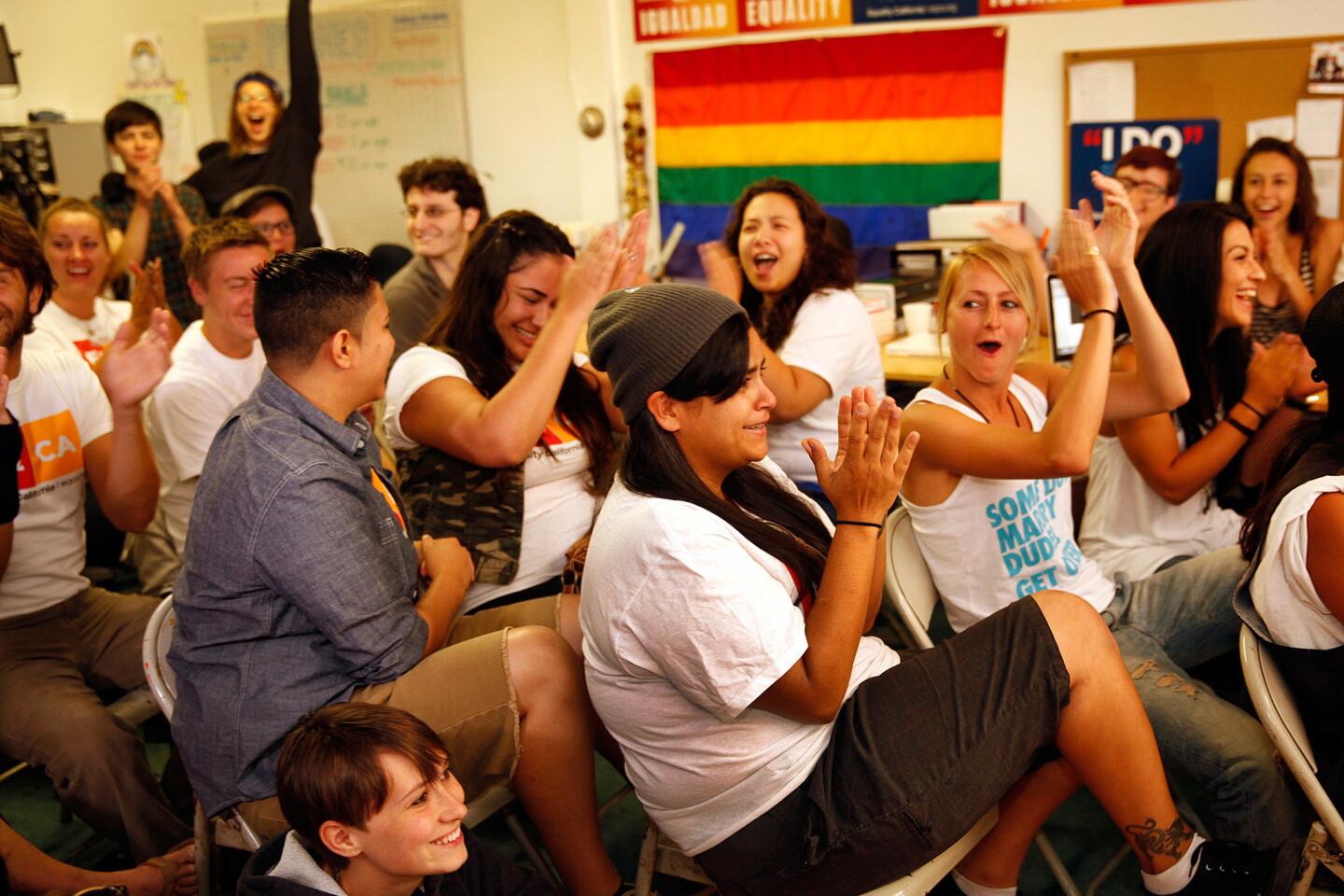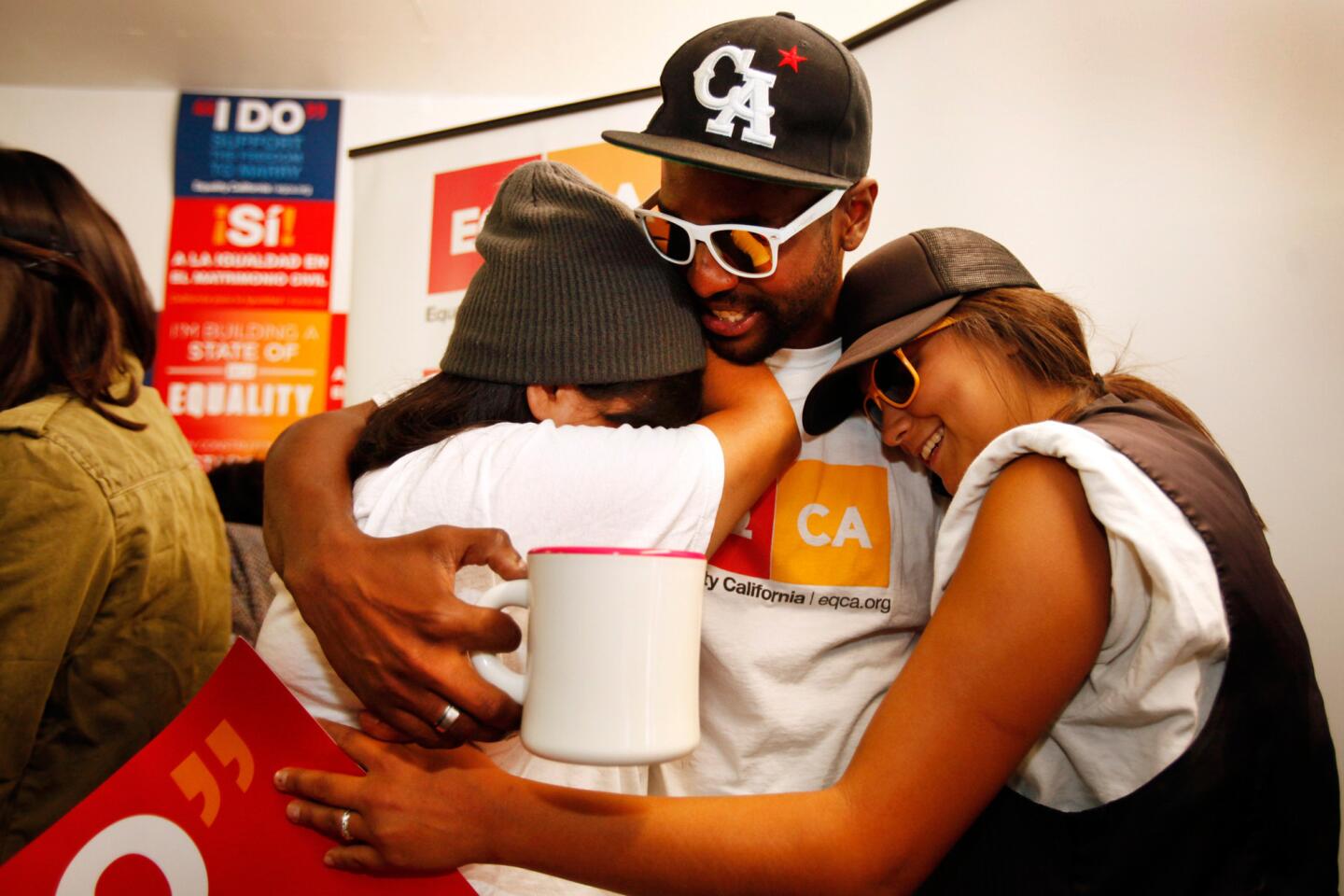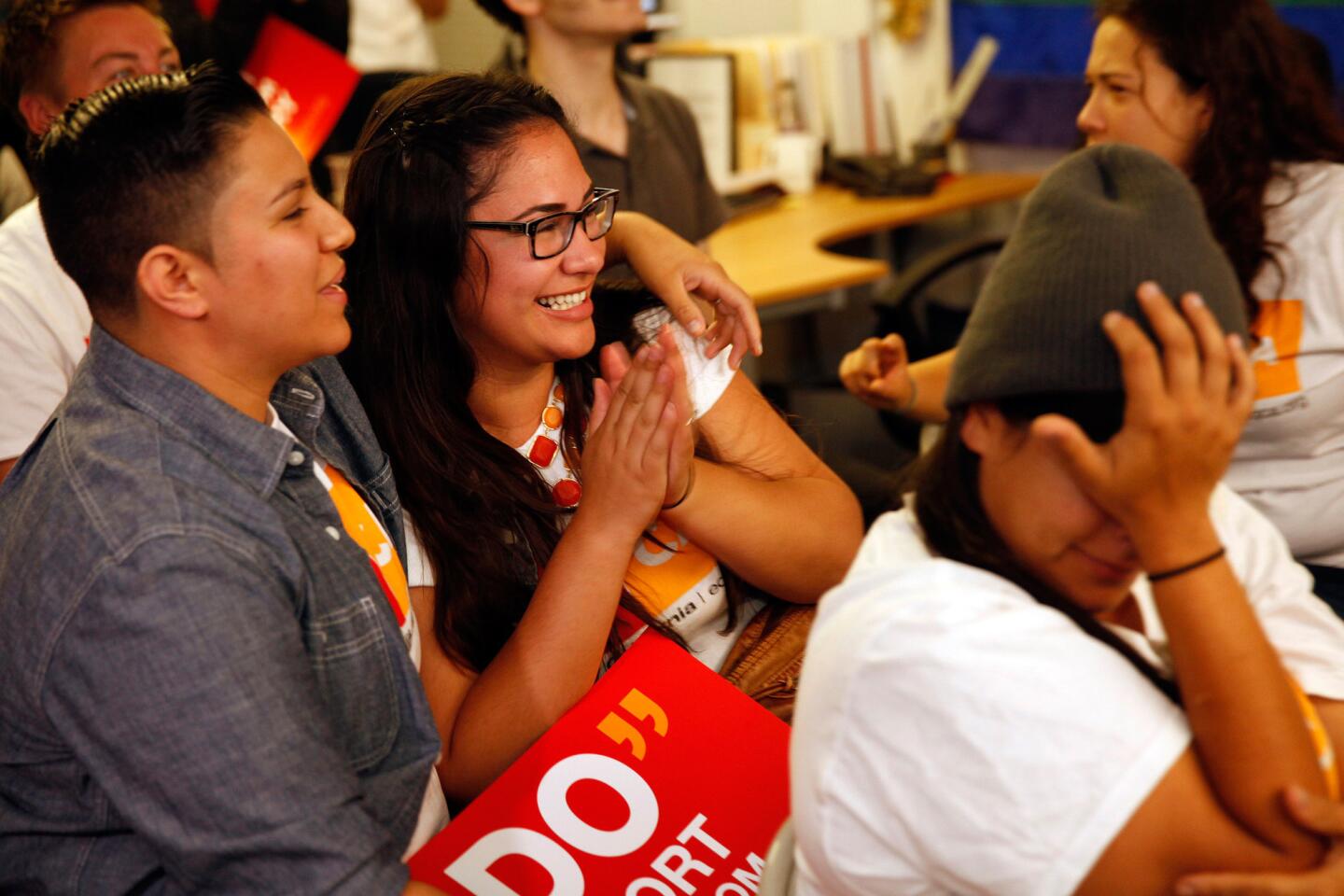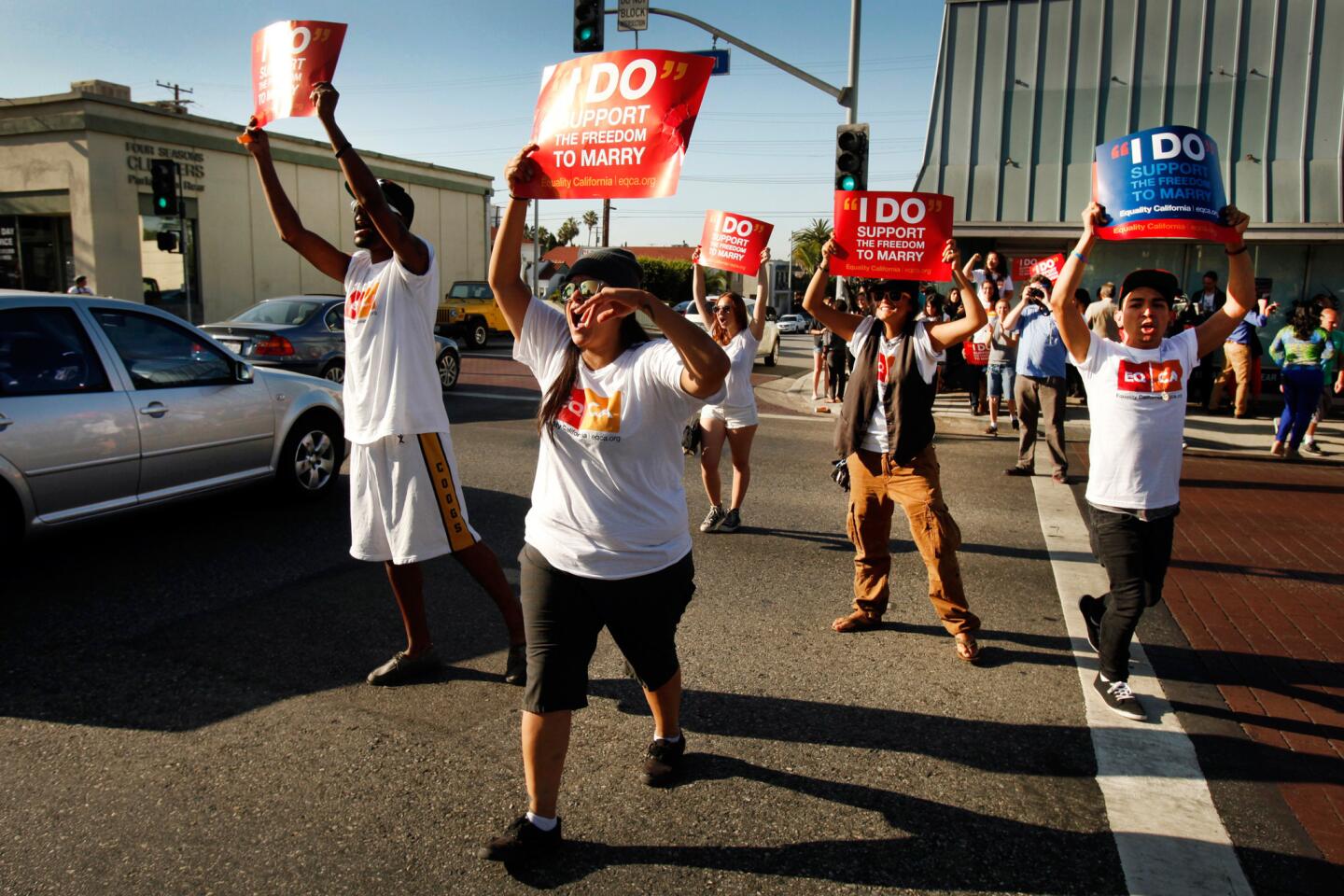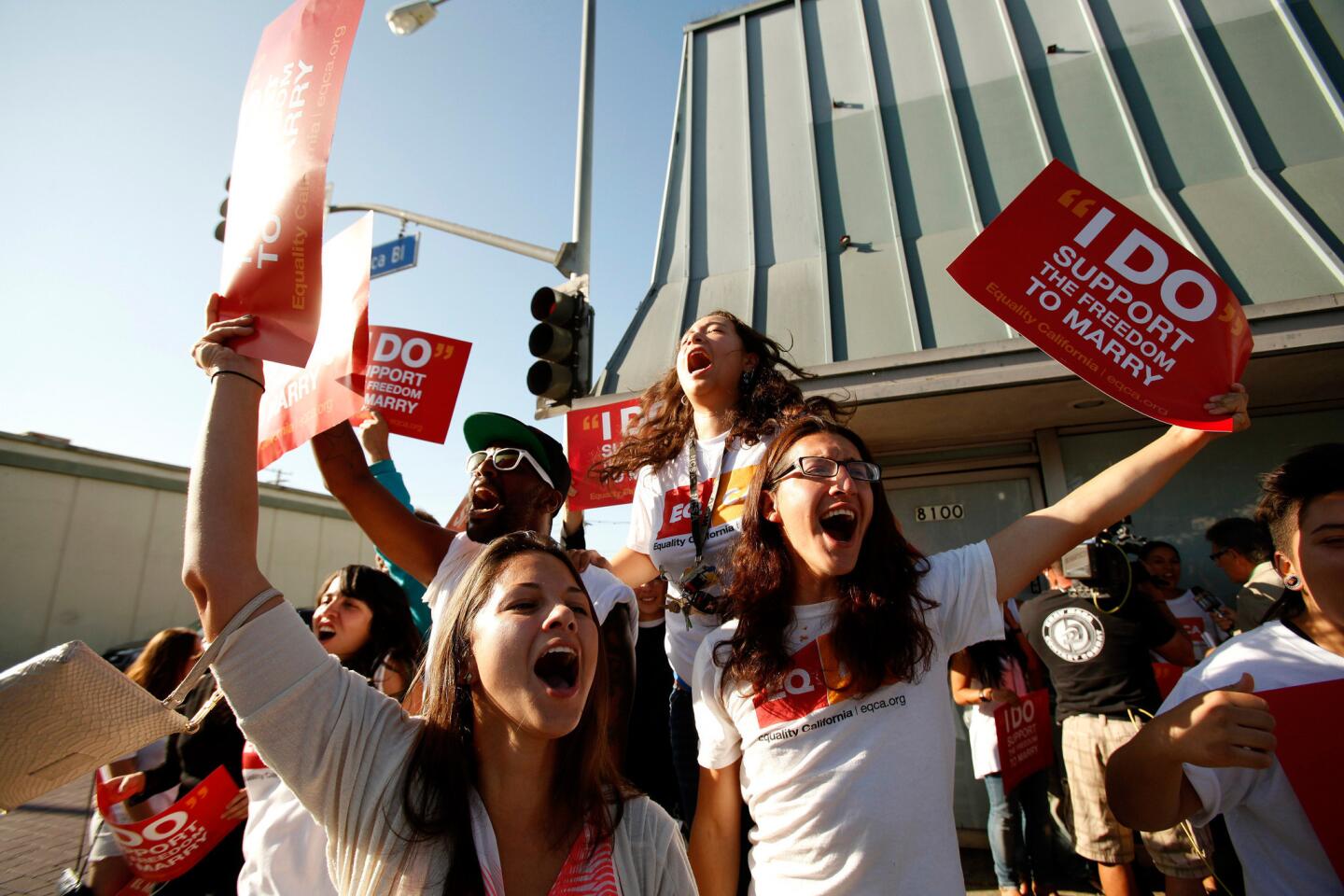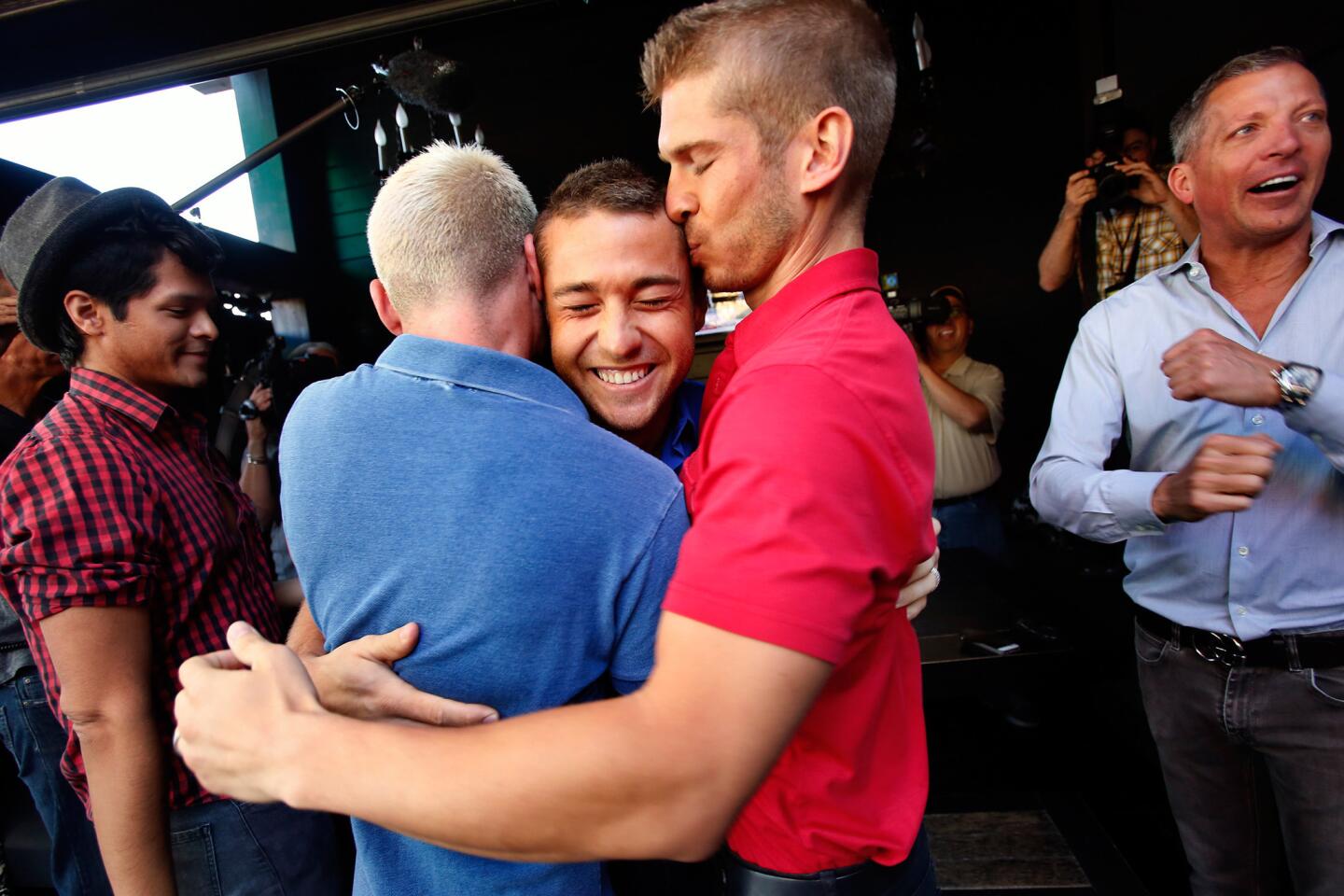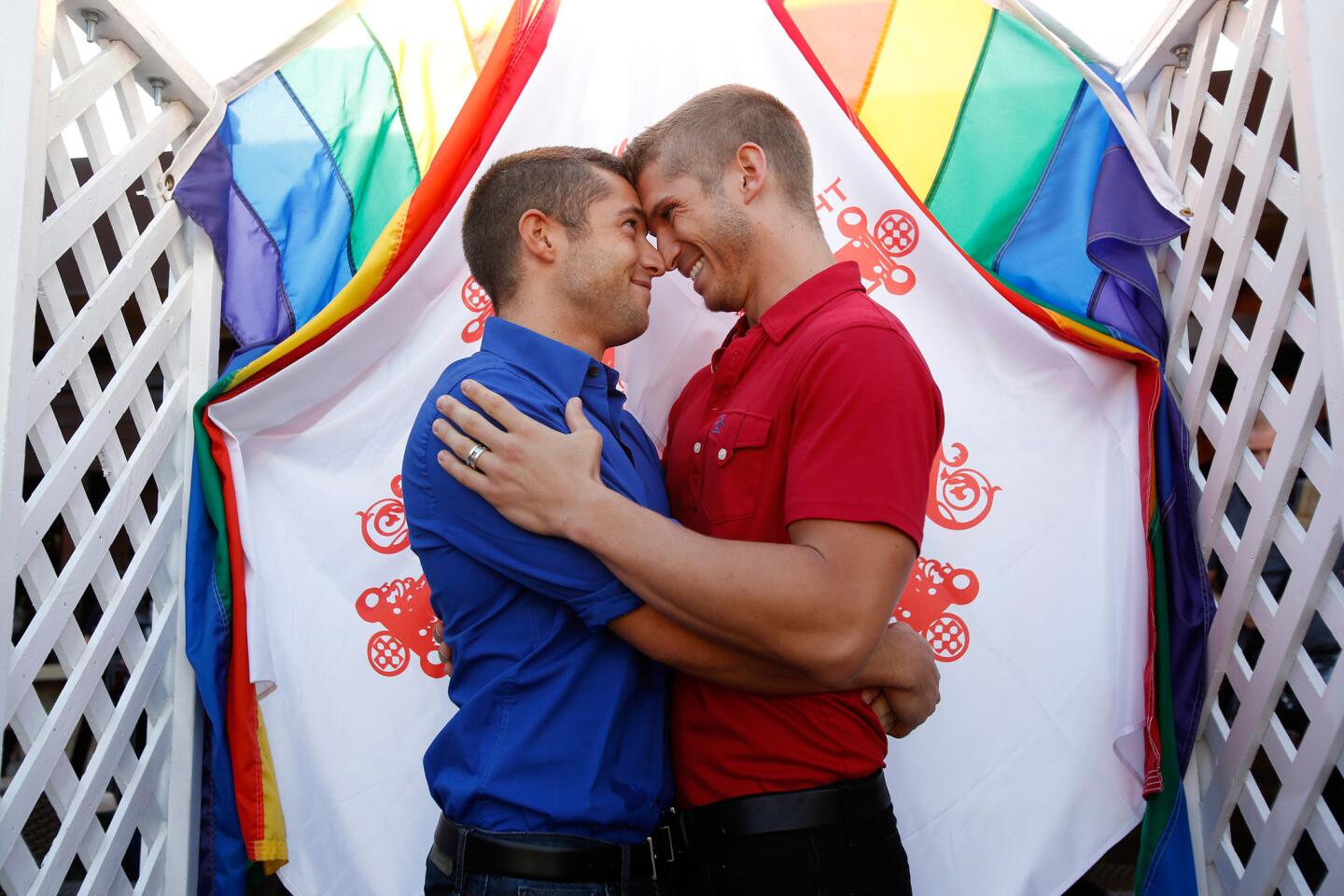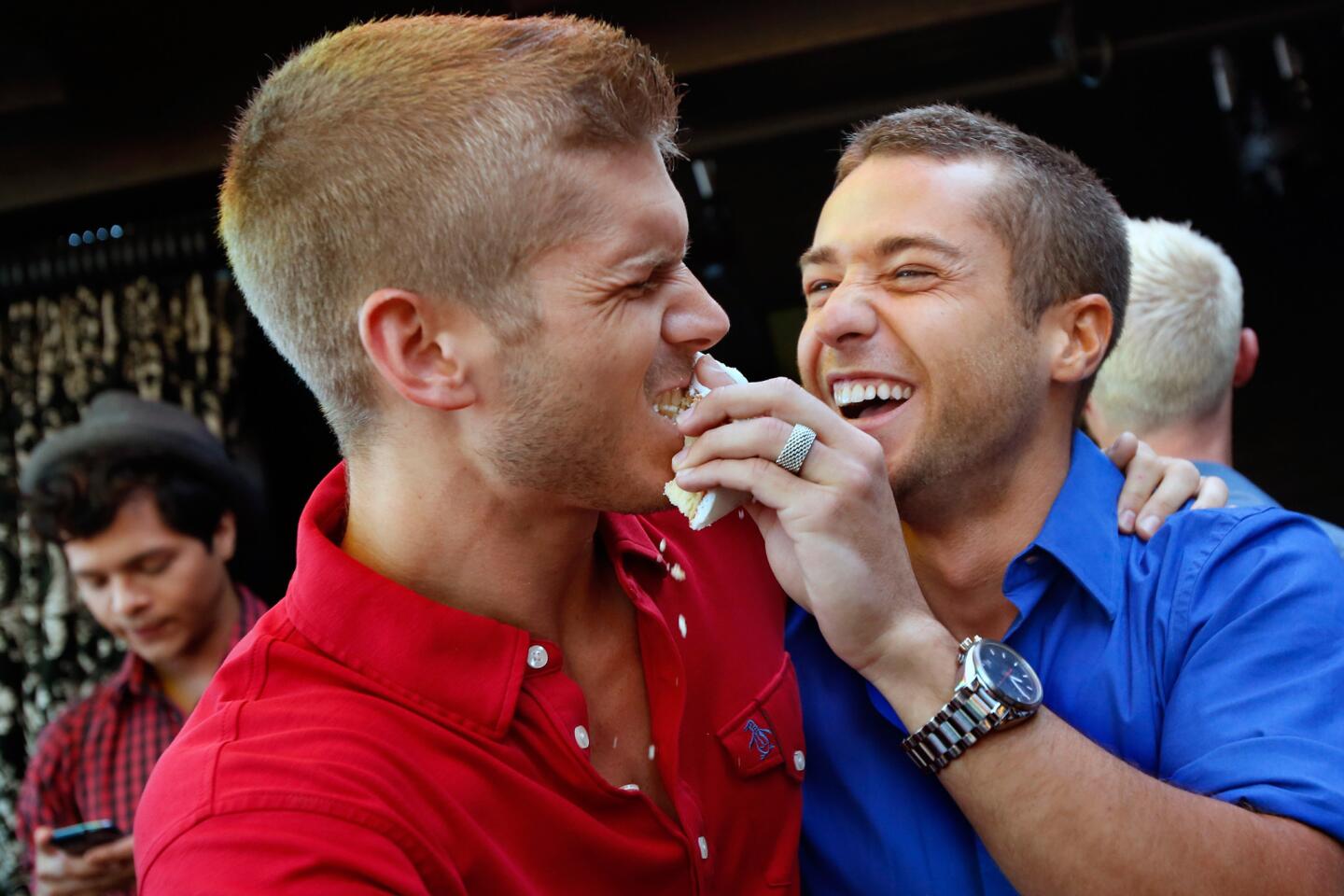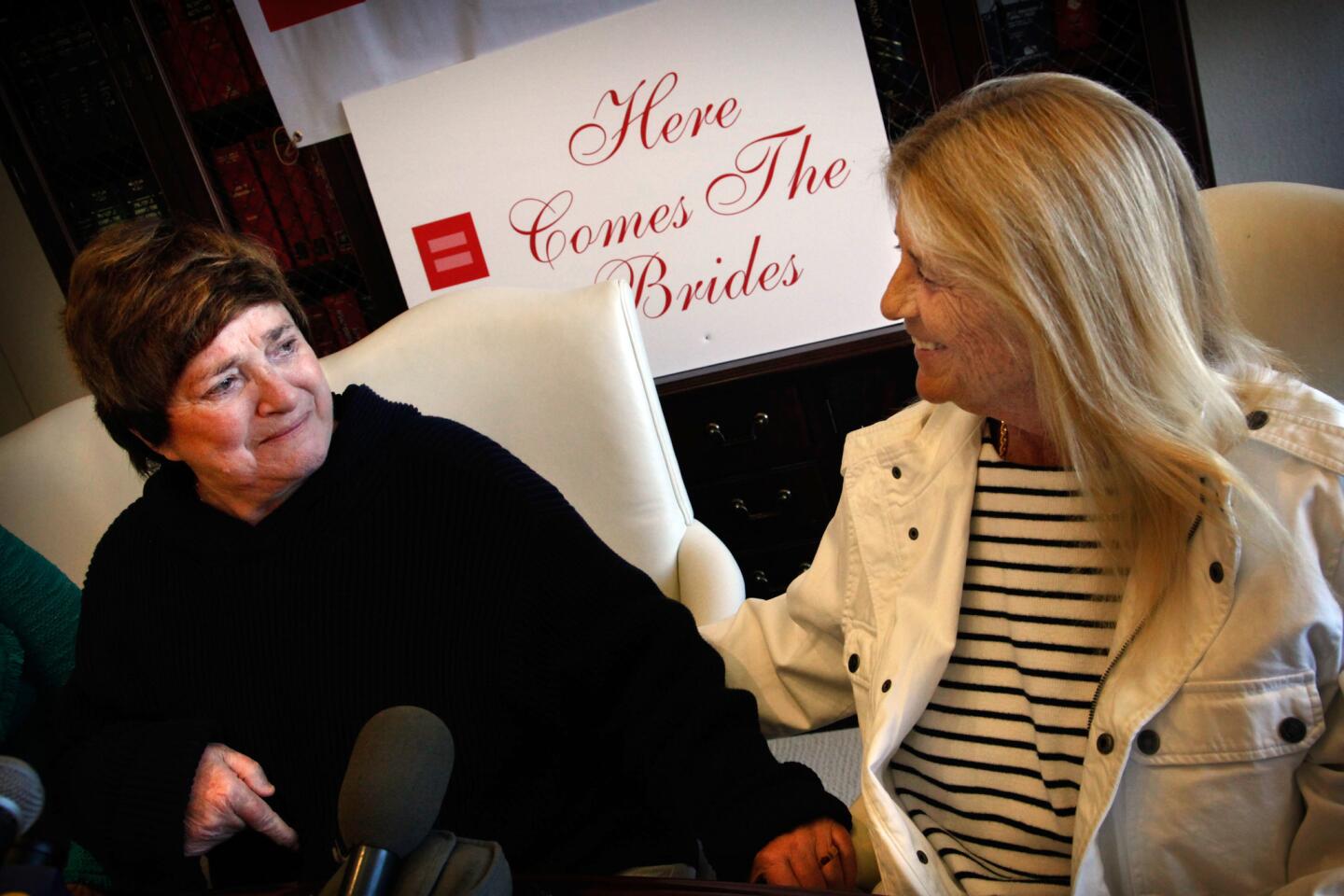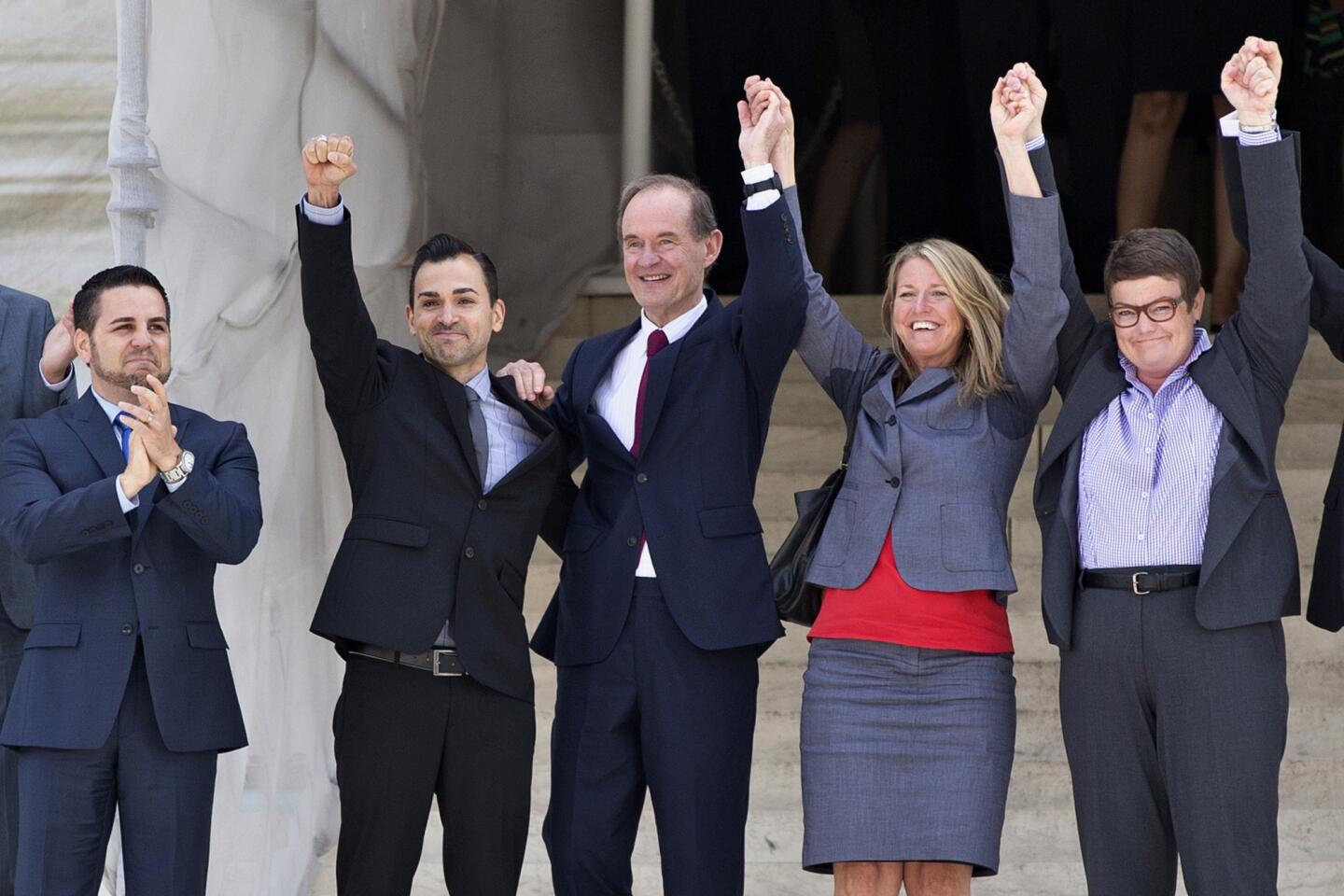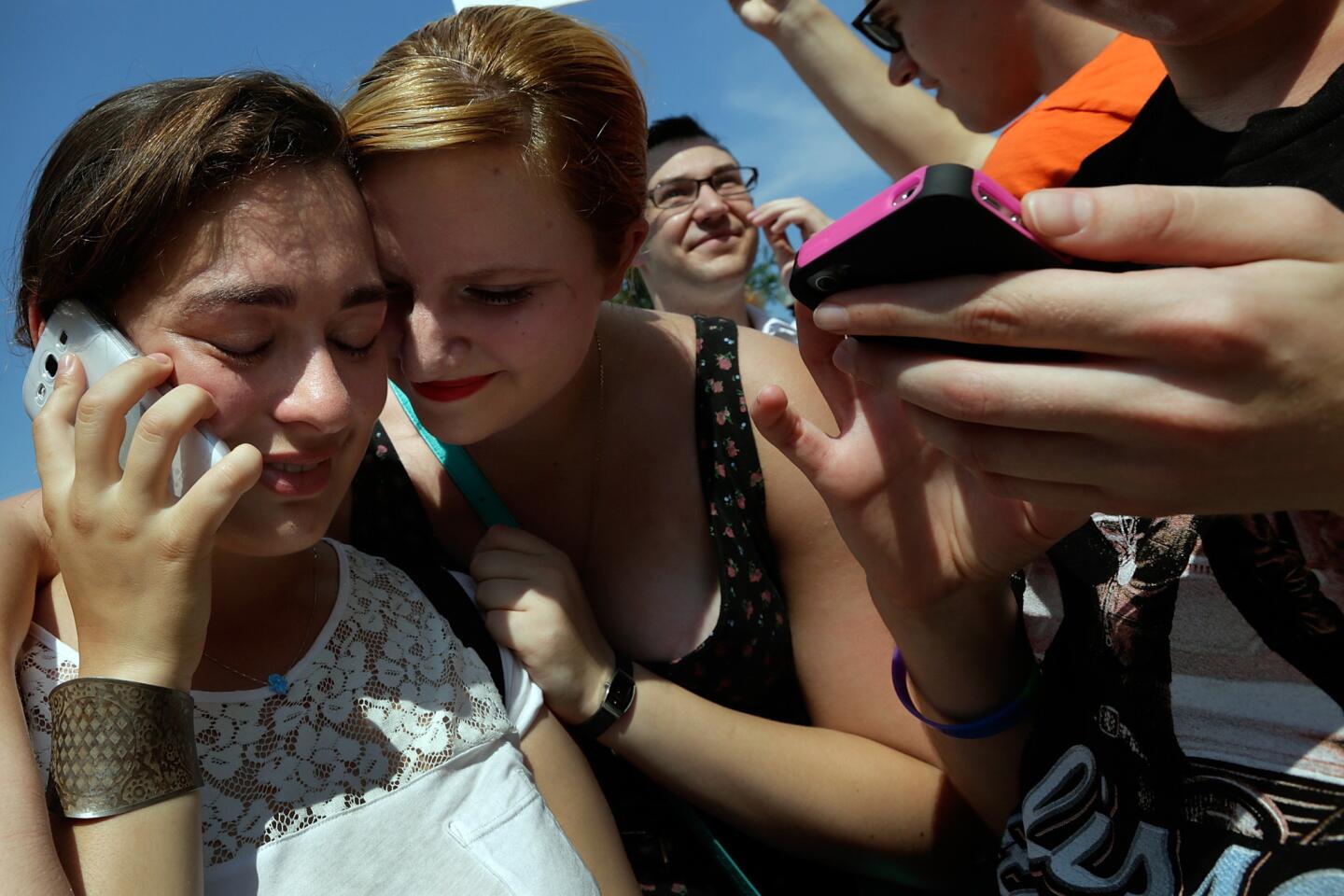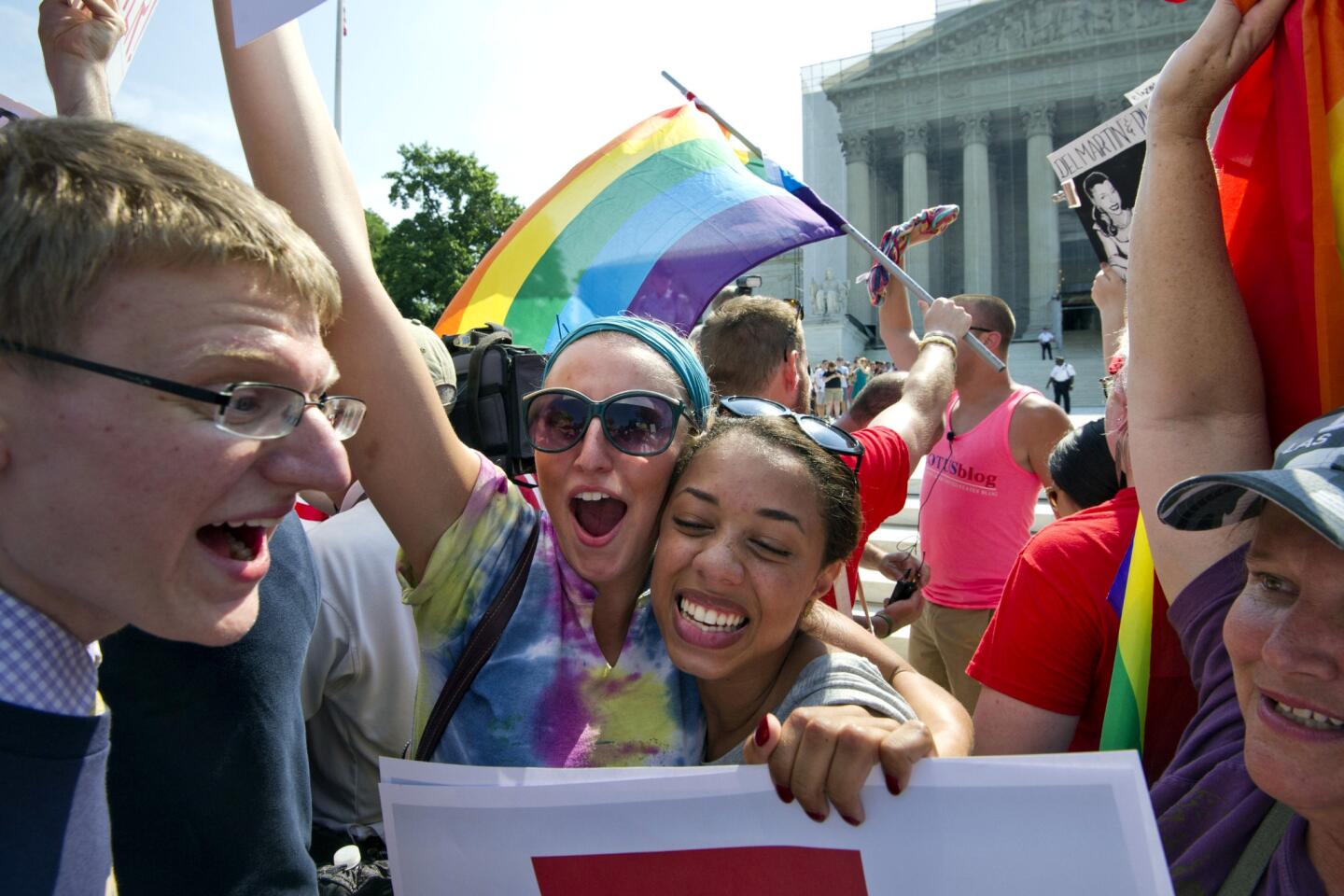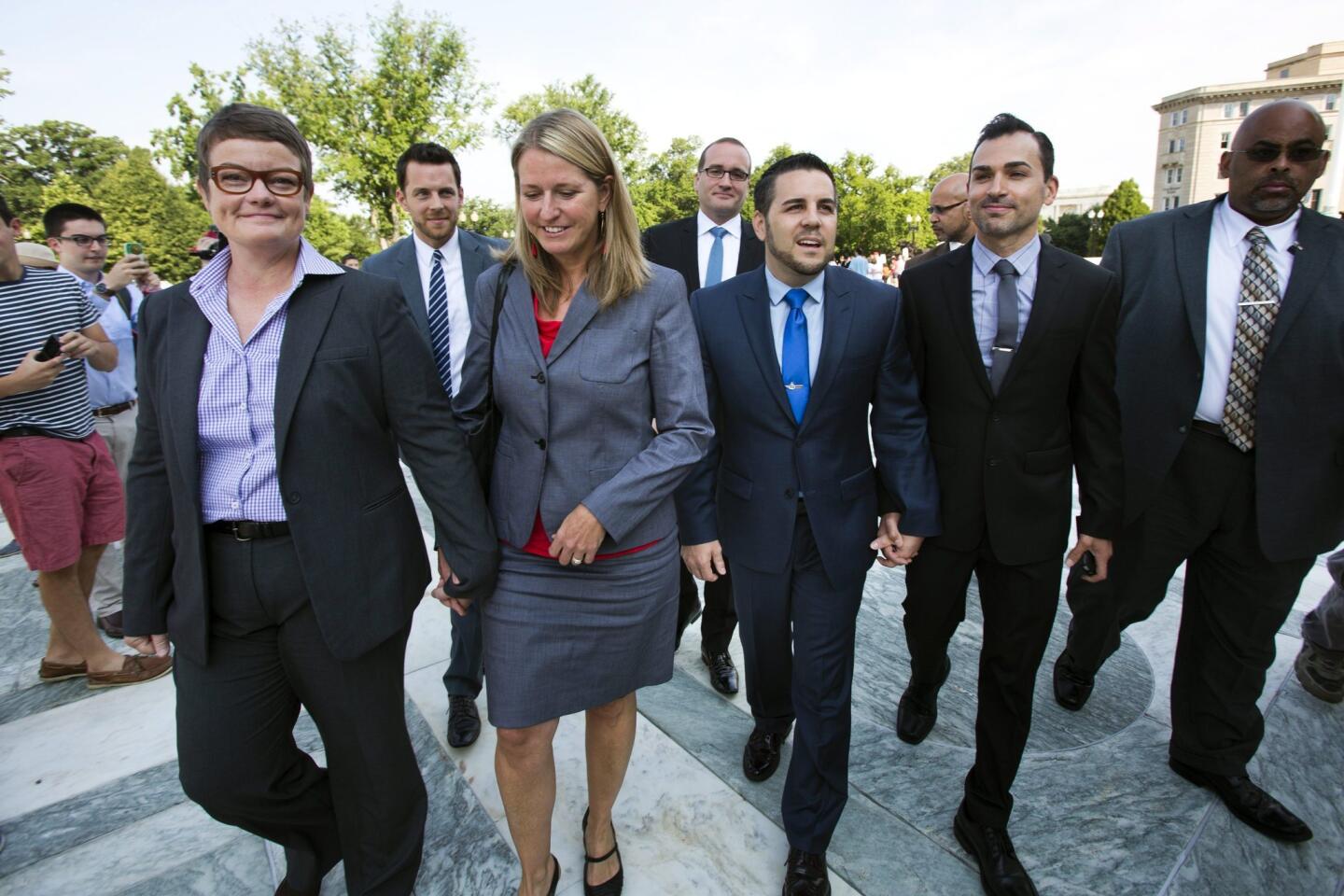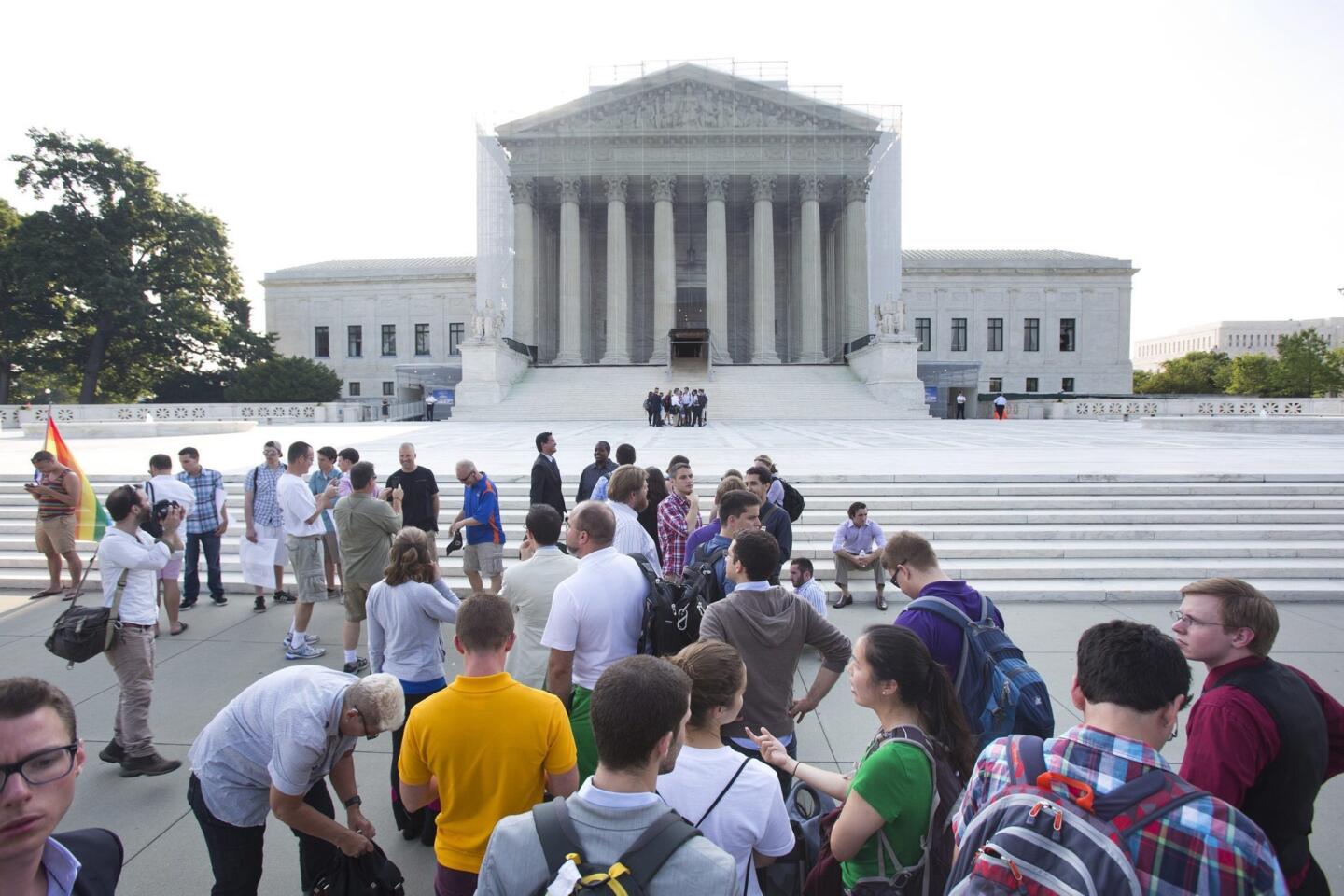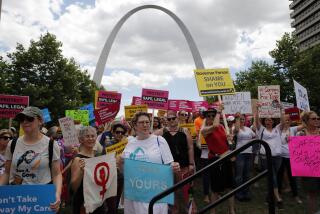Prop. 8: What a ‘standing’ ruling would mean for California
SAN FRANCISCO -- The Supreme Court’s ruling on Proposition 8 Wednesday may be a straightforward decision that upholds or rejects California’s ban on same-sex marriage — or it might be based on legal rules that have little to do with gay rights.
The court could decide that ProtectMarriage, the sponsors of Proposition 8, did not have the legal right to appeal Chief U.S. District Judge Vaughn R. Walker’s 2010 ruling against the 2008 ballot measure. State officials, who clearly could have appealed, accepted Walker’s decision and refused to challenge it.
Walker held a trial that examined the nature of sexual orientation, the history of marriage and evidence of discrimination against gays and lesbians. He issued an injunction ordering Gov. Jerry Brown and other state officials to stop enforcing Proposition 8.
Acting on an appeal by ProtectMarriage, the U.S. 9th Circuit Court of Appeals put a hold on Walker’s decision pending resolution of the legal fight. The 9th Circuit eventually ruled 2-1 that Proposition 8 should be struck down on narrow legal grounds that applied only to California.
ProtectMarriage then appealed to the Supreme Court. If the high court decides the group lacked standing to appeal, the 9thCircuit decision would be wiped out, leaving only Walker’s ruling, lawyers said.
A Supreme Court decision is generally final after 25 days. The 9thCircuit would then presumably lift its hold on Walker’s injunction against Proposition 8.
But ProtectMarriage has argued Walker’s decision applied only to the two same-sex couples who sued. Gay rights lawyers disagree, insisting that the injunction blocked state officials from enforcing the ban statewide.
The Supreme Court could decide Wednesday which side is right or leave it to lower courts to determine. If the court declines to take a position, Gov. Jerry Brown would probably enforce Walker’s order statewide and allow same-sex marriages to resume, possibly late next month.
But the fight might not end. Opponents of gay marriage have suggested they might go back to court to try to prevent Brown from enforcing the injunction beyond the couples named as plaintiffs in the lawsuit.
District judges generally are supposed to apply injunctions narrowly to the parties before them unless they are deciding a class action lawsuit or unless a broad order is the only way to protect the plaintiffs who sued. The Proposition 8 challenge was not filed as a class action.
Gay rights lawyers say they are confident any effort to limit Walker’s decision will fail. They note that district judges have often issued sweeping injunctions affecting millions of people.
“It happens all the time,” said Chief Deputy San Francisco City Atty. Terese Stewart, who has assisted San Francisco City Atty. Dennis J. Herrera in fighting the gay marriage ban. “This idea that a district court can’t issue a judgment that is broad enough to cover an entire state or federal agency is just nonsense.”
None of this will matter if the Supreme Court resolves the dispute differently. The court could determine that it should never have granted review and dismiss the case, leaving the 9th Circuit decision in place.
The court also could send the case back to the 9th Circuit for reconsideration in light of its ruling, also expected Wednesday, in the challenge to the Defense of Marriage Act, which bars federal recognition of same-sex marriage.
Or the court could simply decide whether Proposition 8 is valid law.
Stay tuned.
ALSO:
Metrolink gets new rail cars designed to boost safety
Former LAPD partners avoid jail time in perjury case
Angry Chris Brown denies hit-and-run charge on Twitter
Twitter:@mauradolan[email protected]
More to Read
Sign up for Essential California
The most important California stories and recommendations in your inbox every morning.
You may occasionally receive promotional content from the Los Angeles Times.
